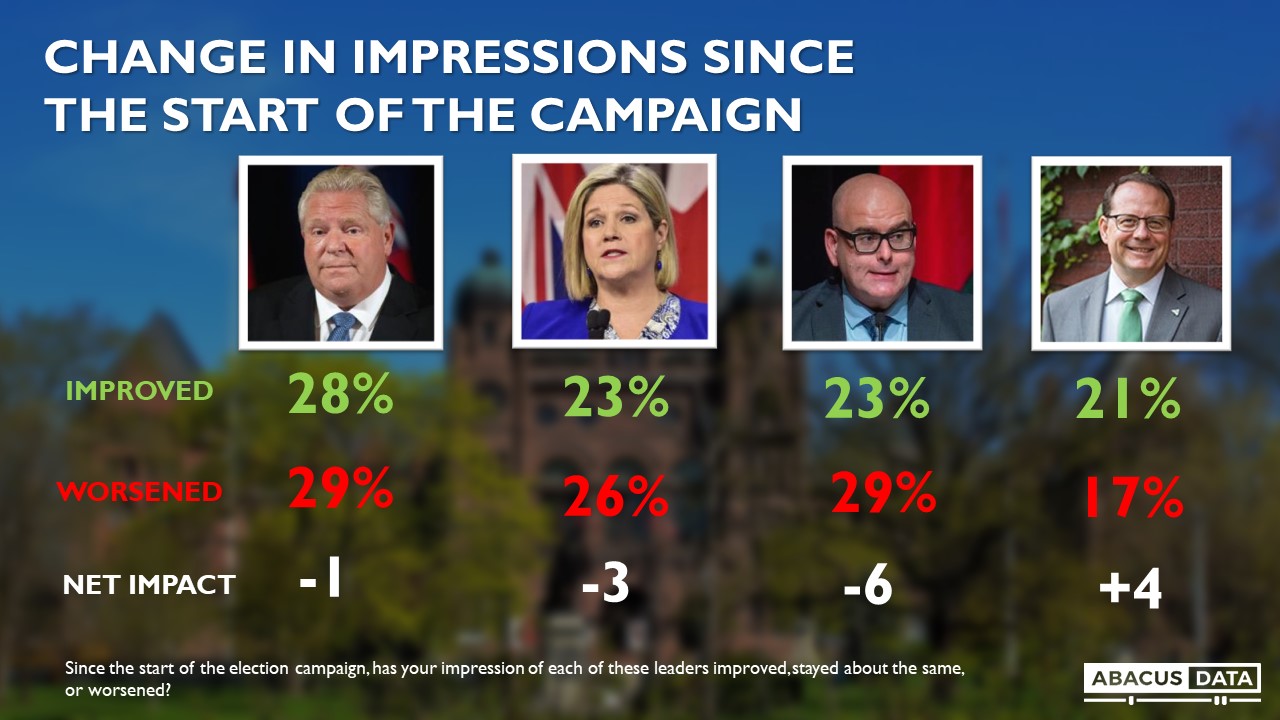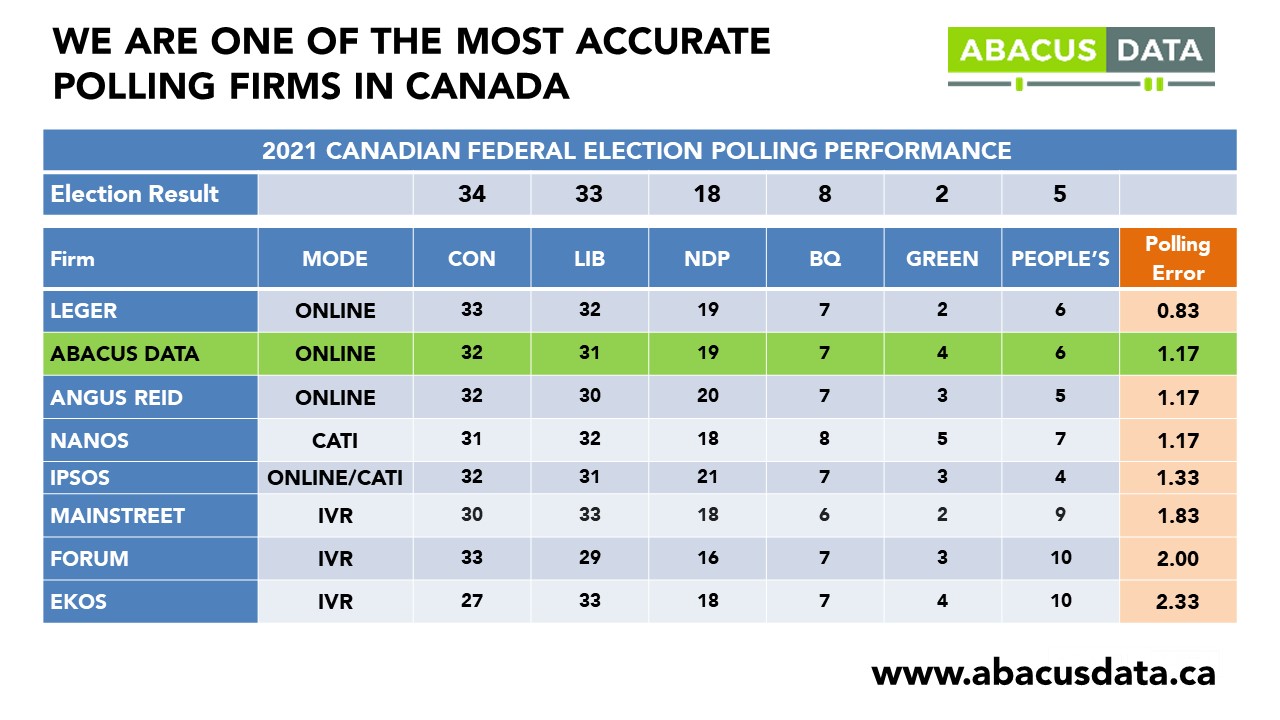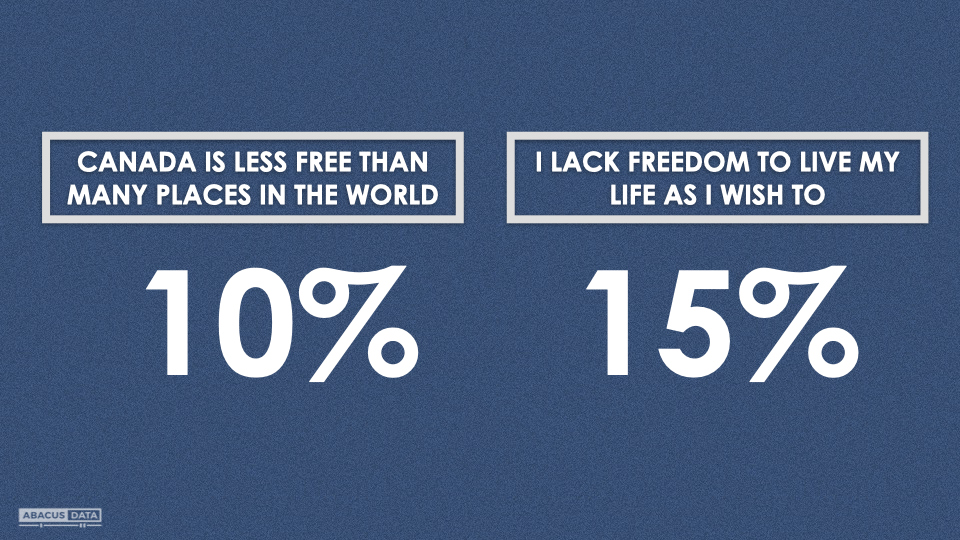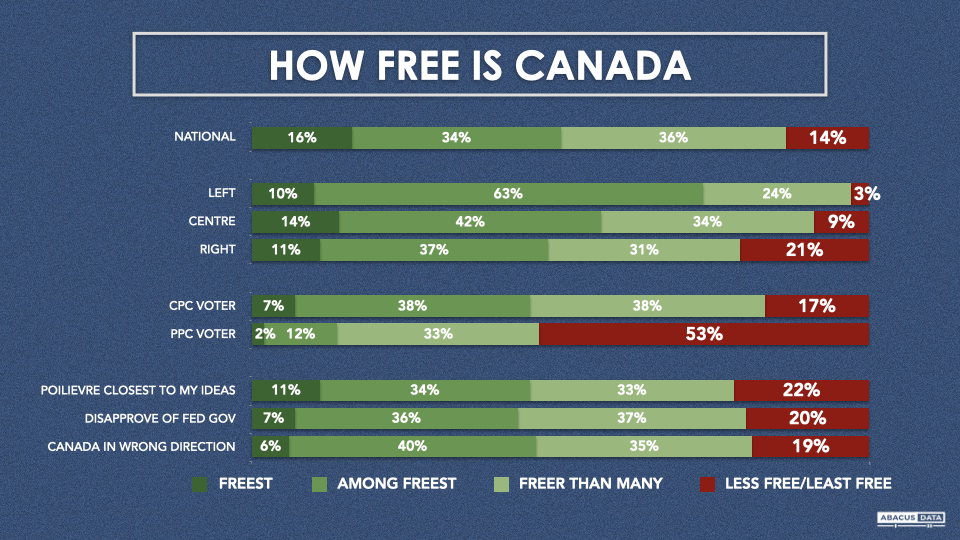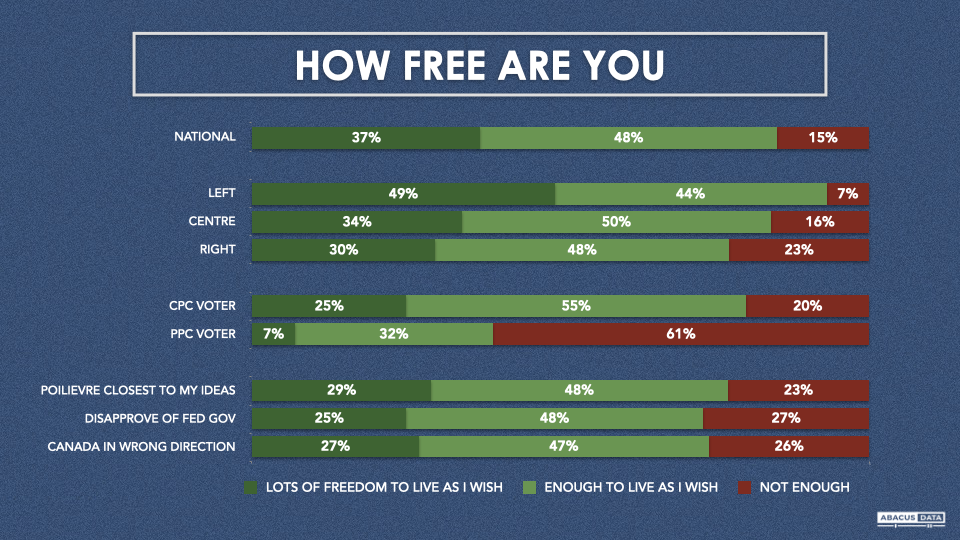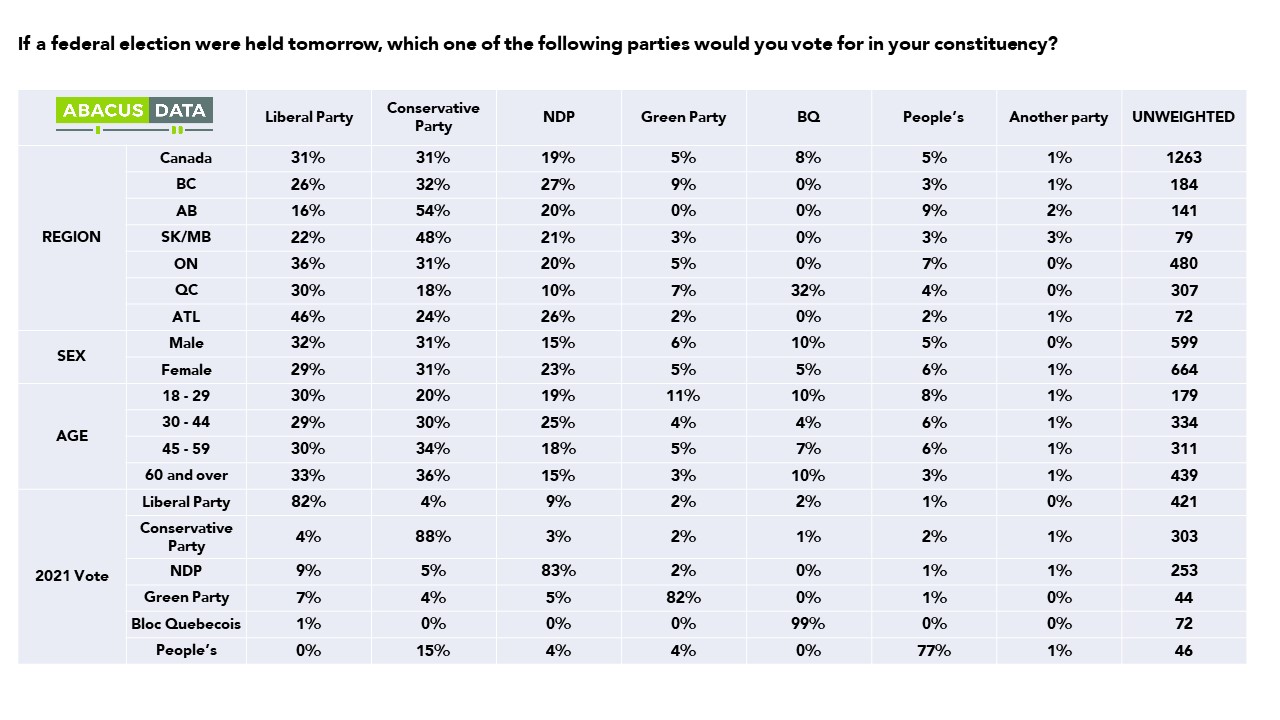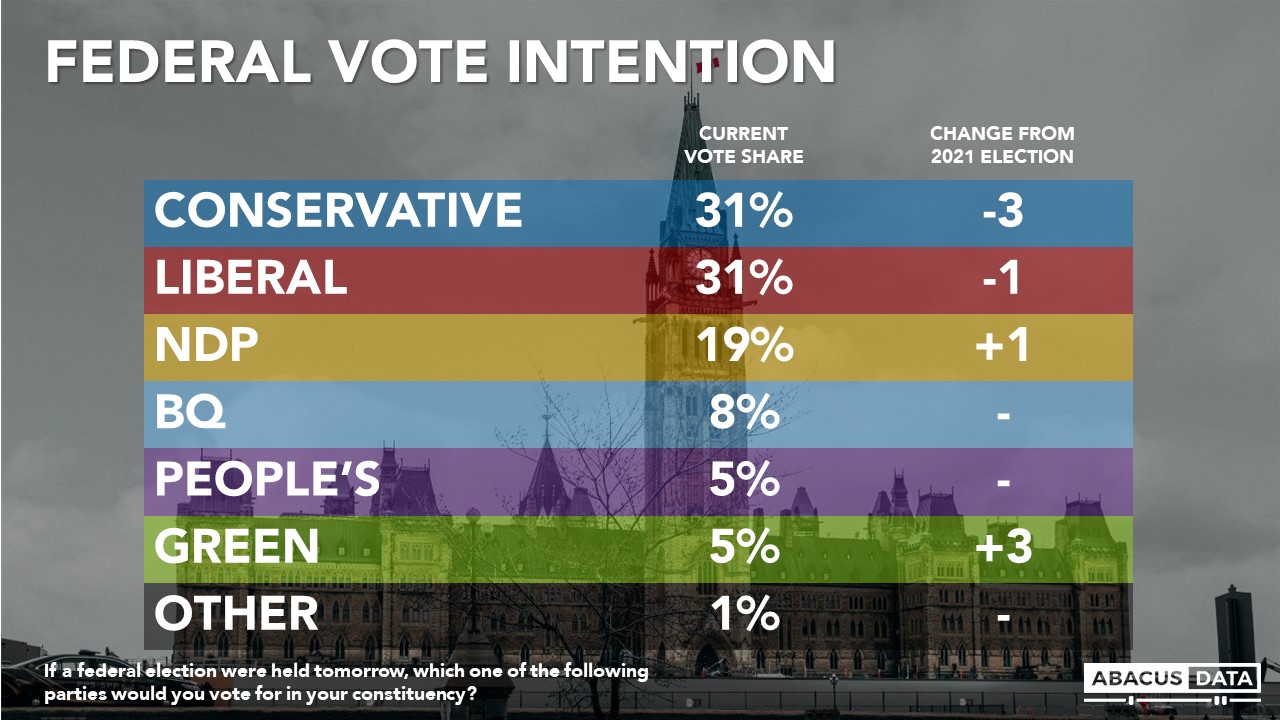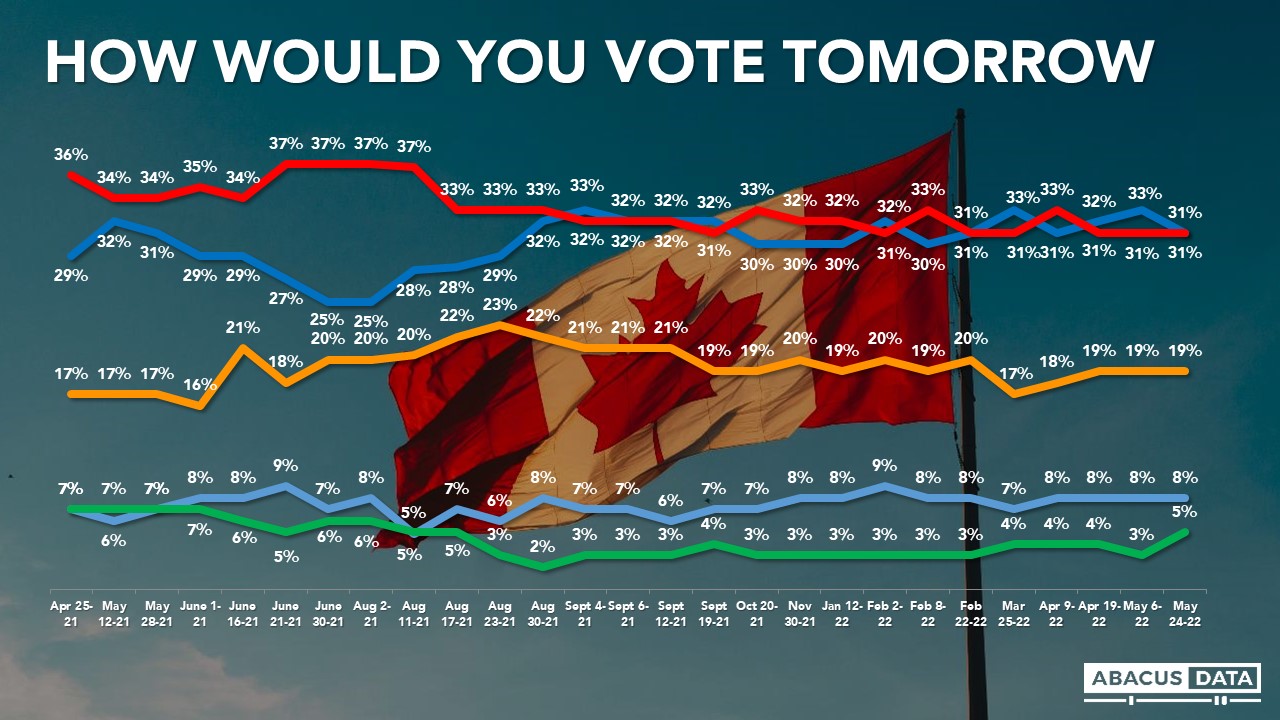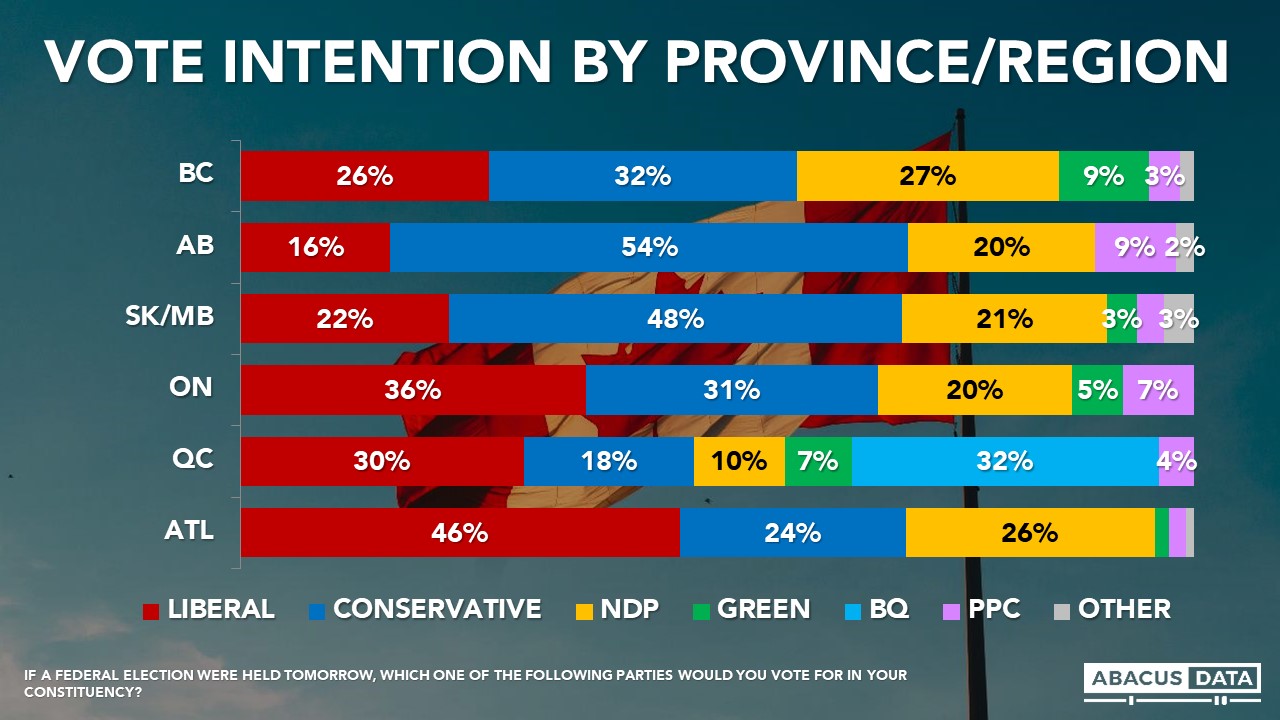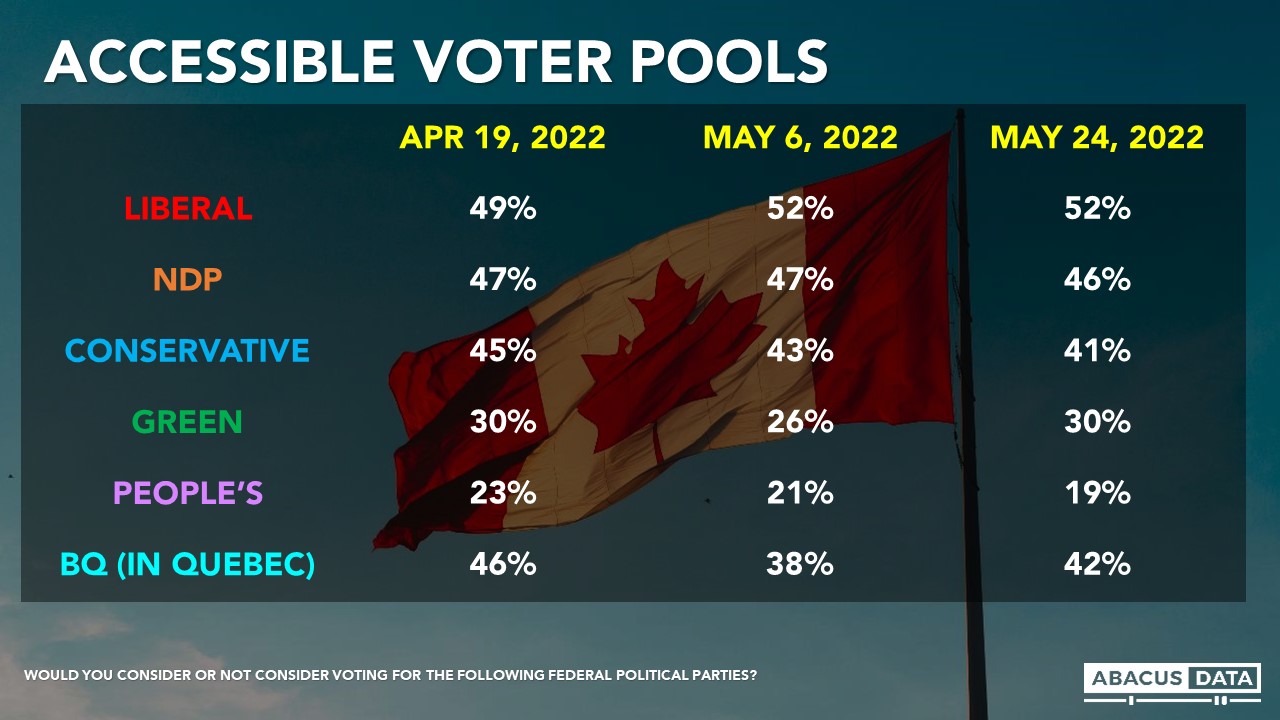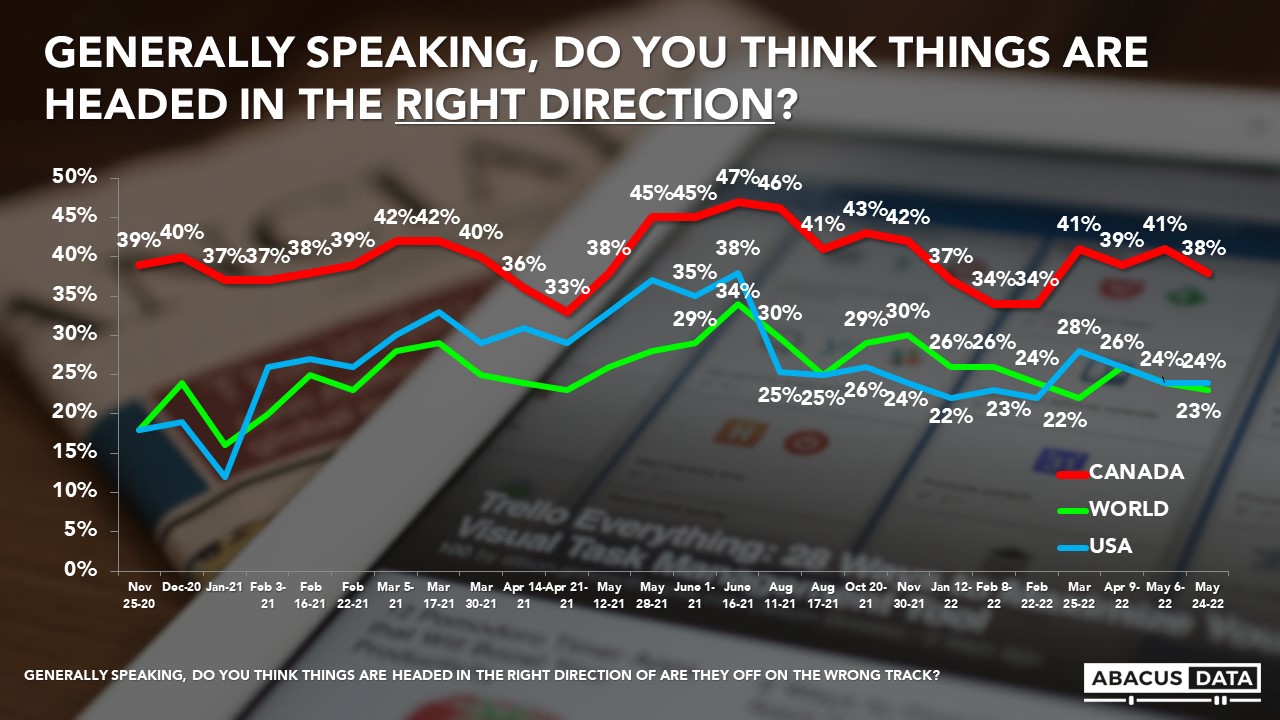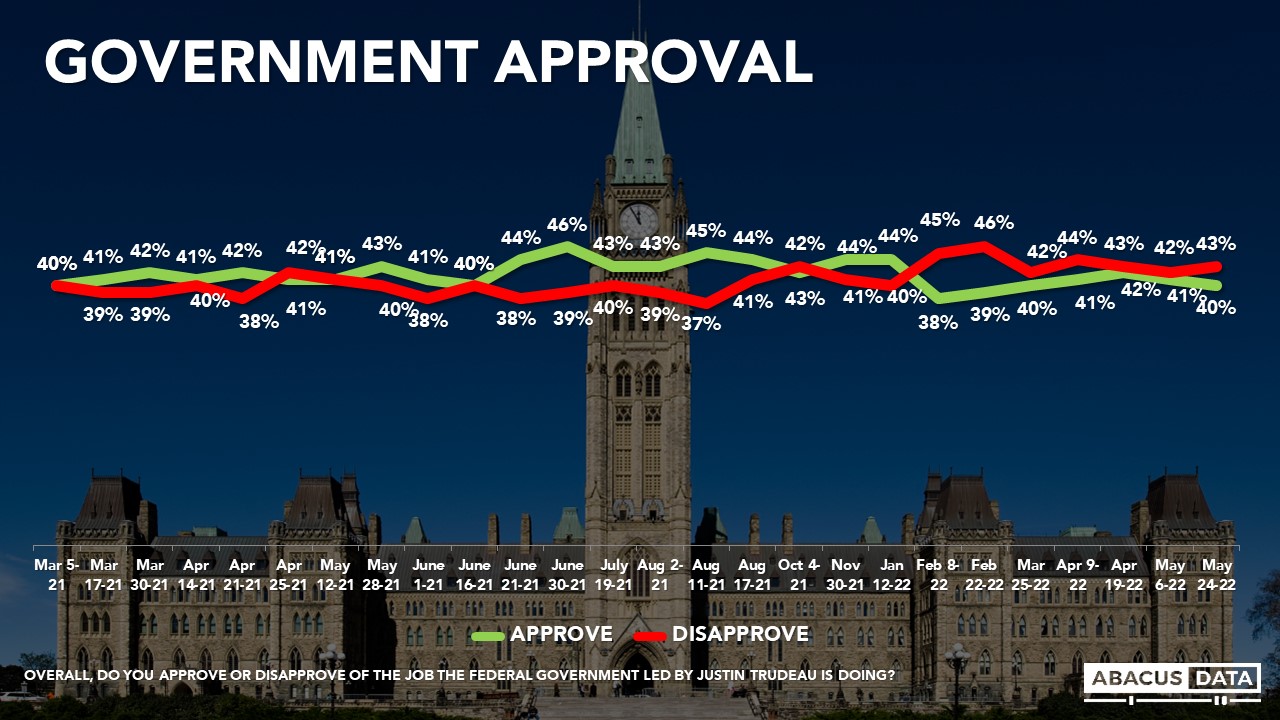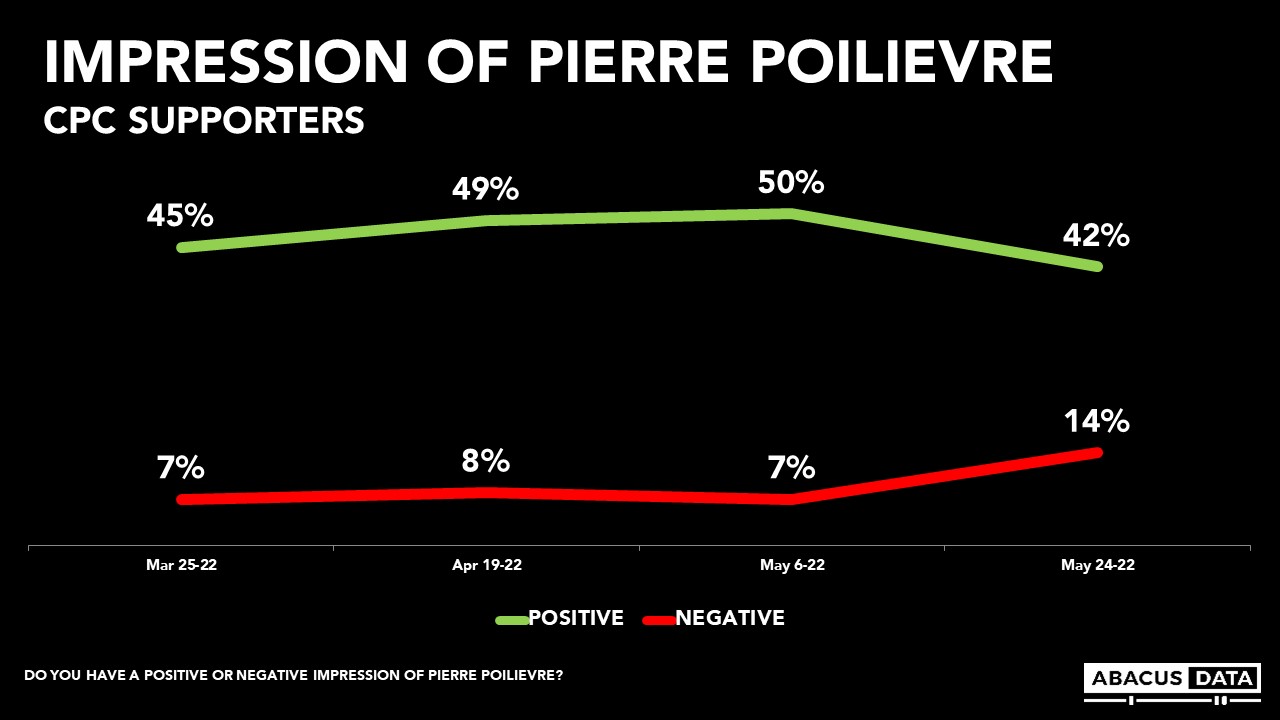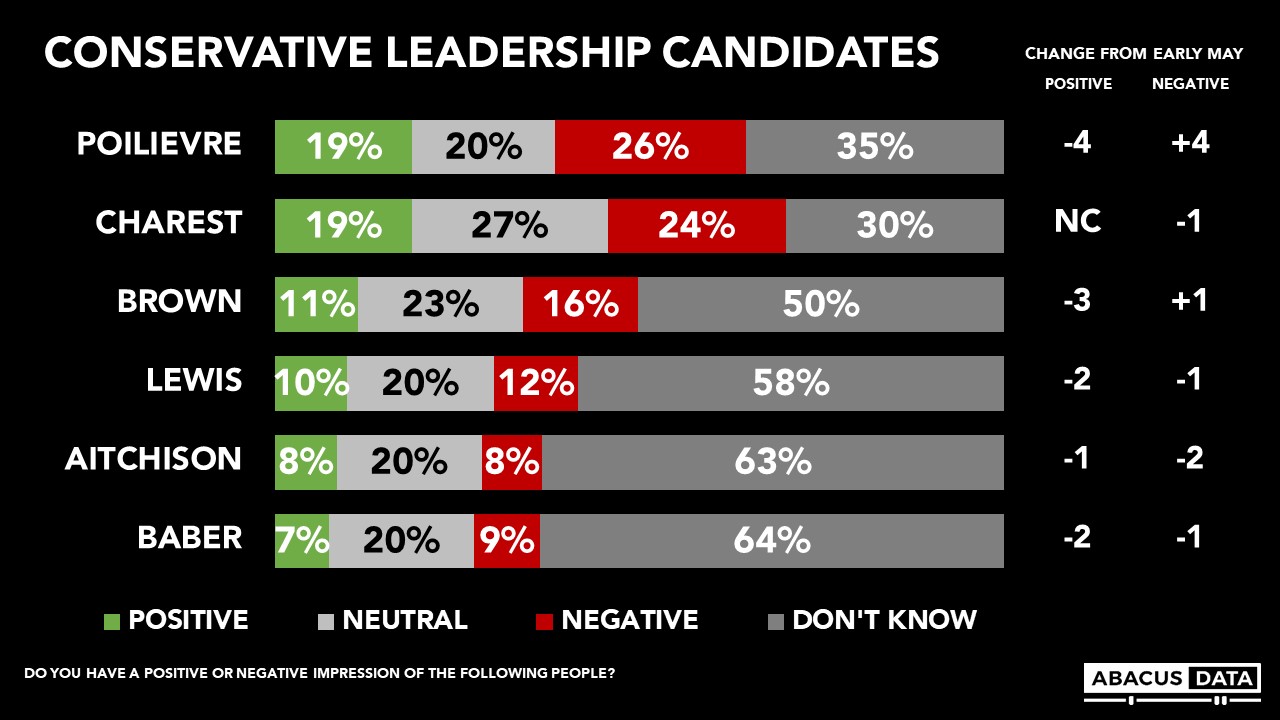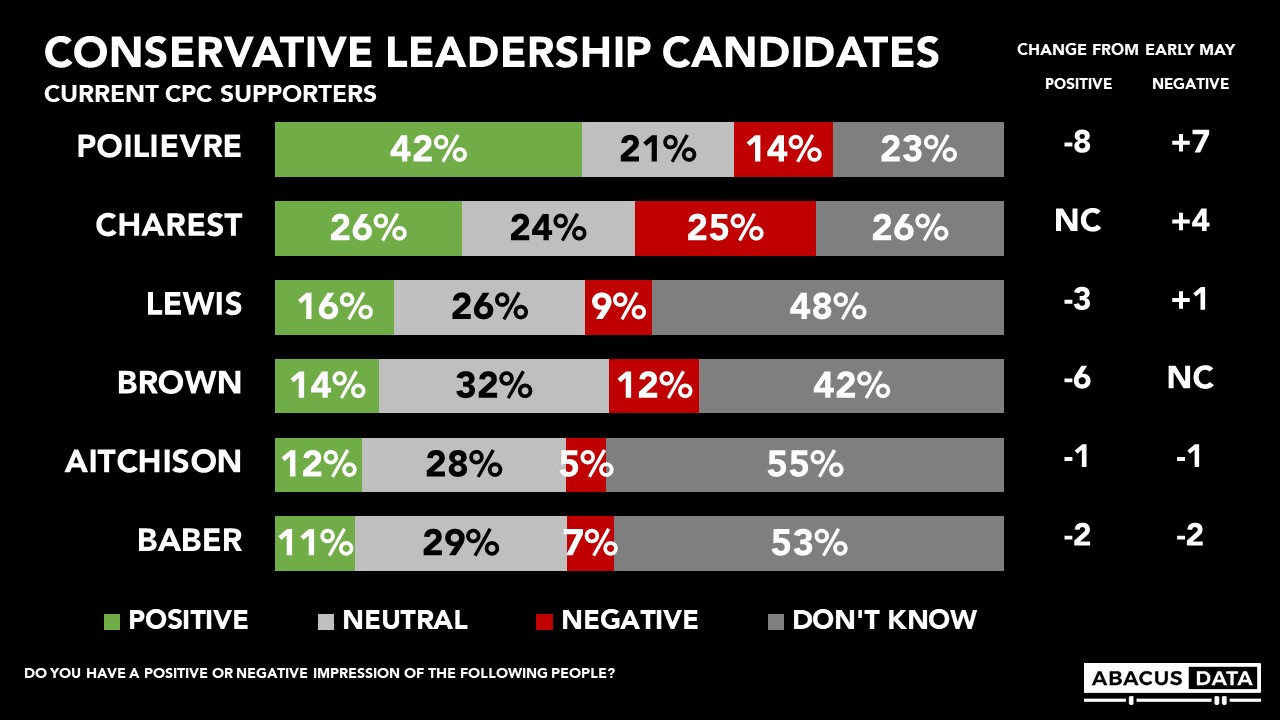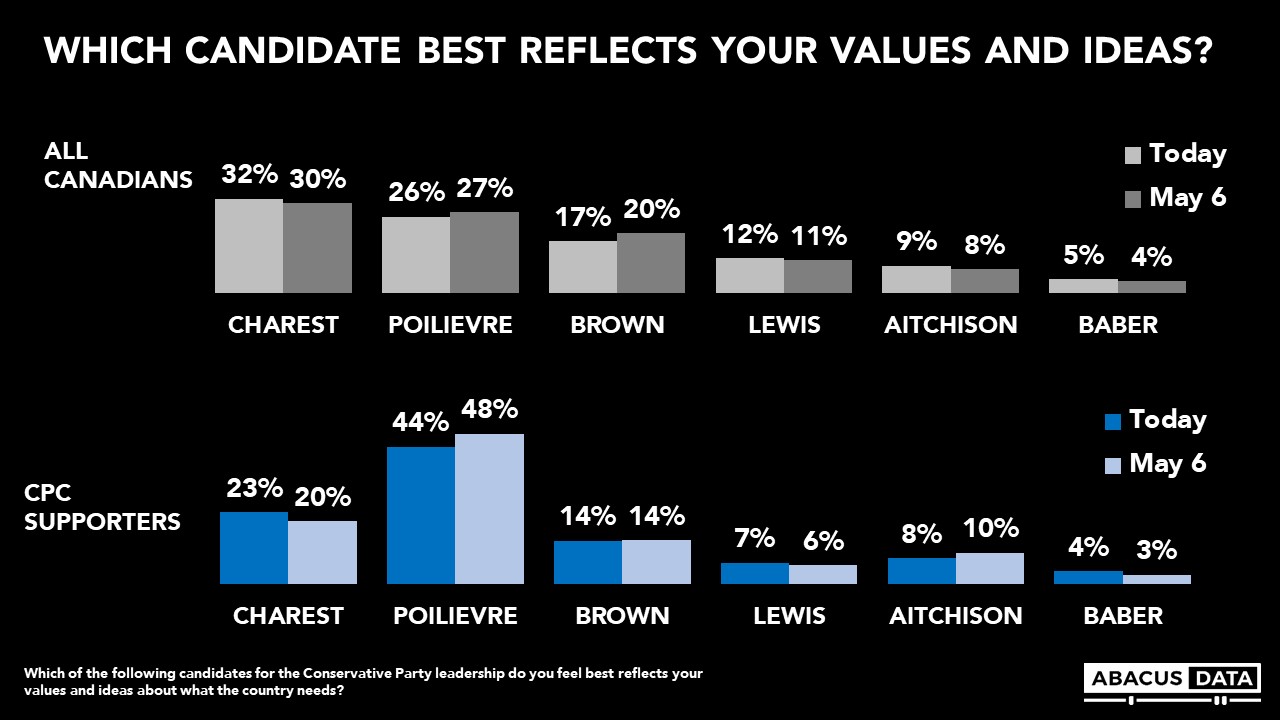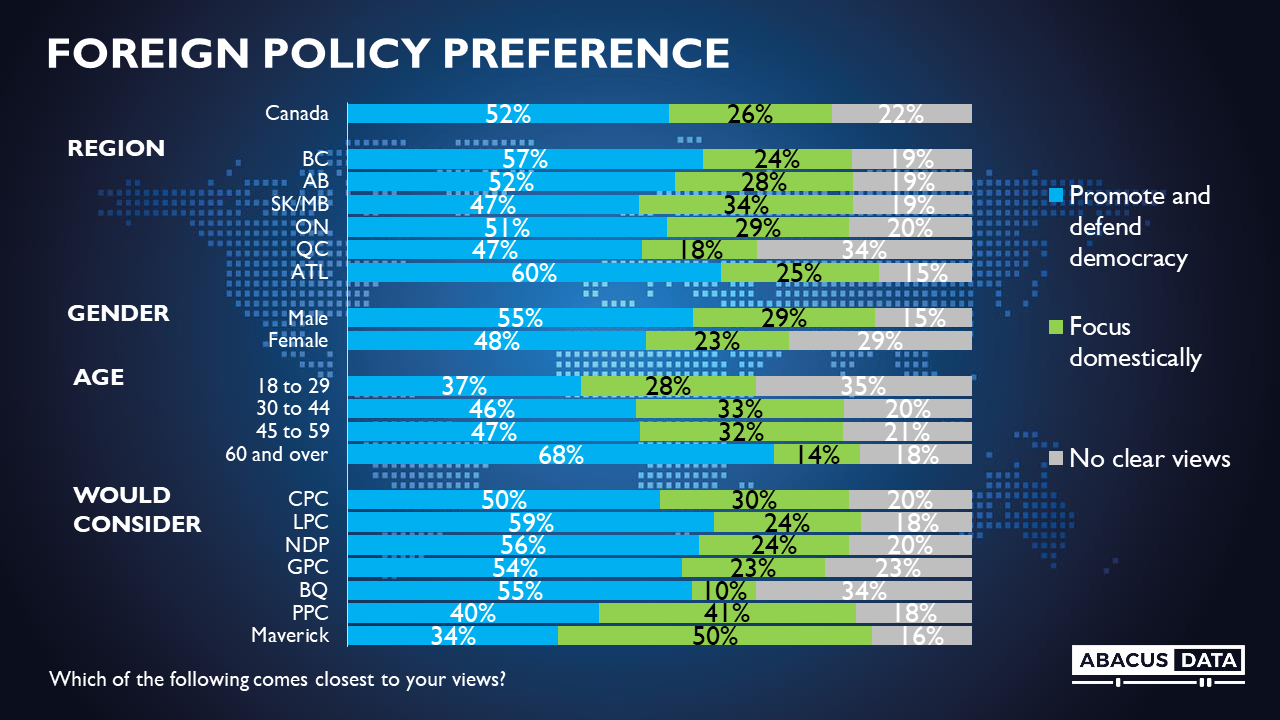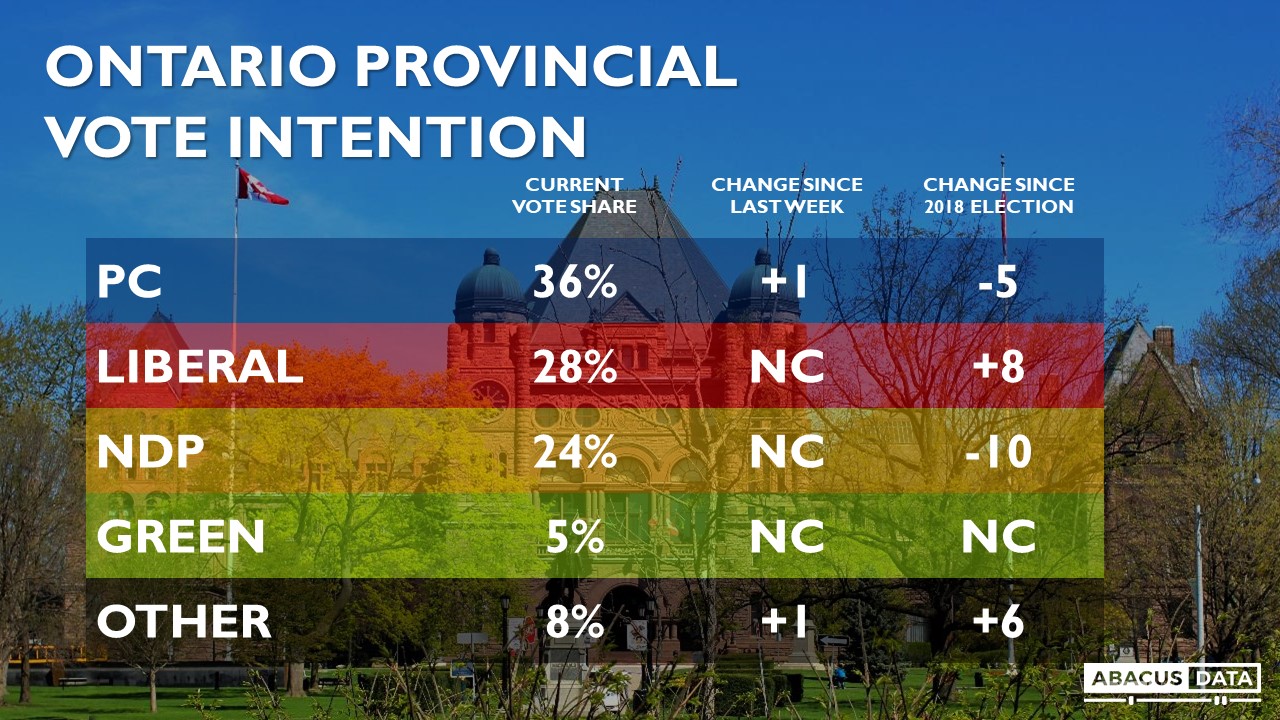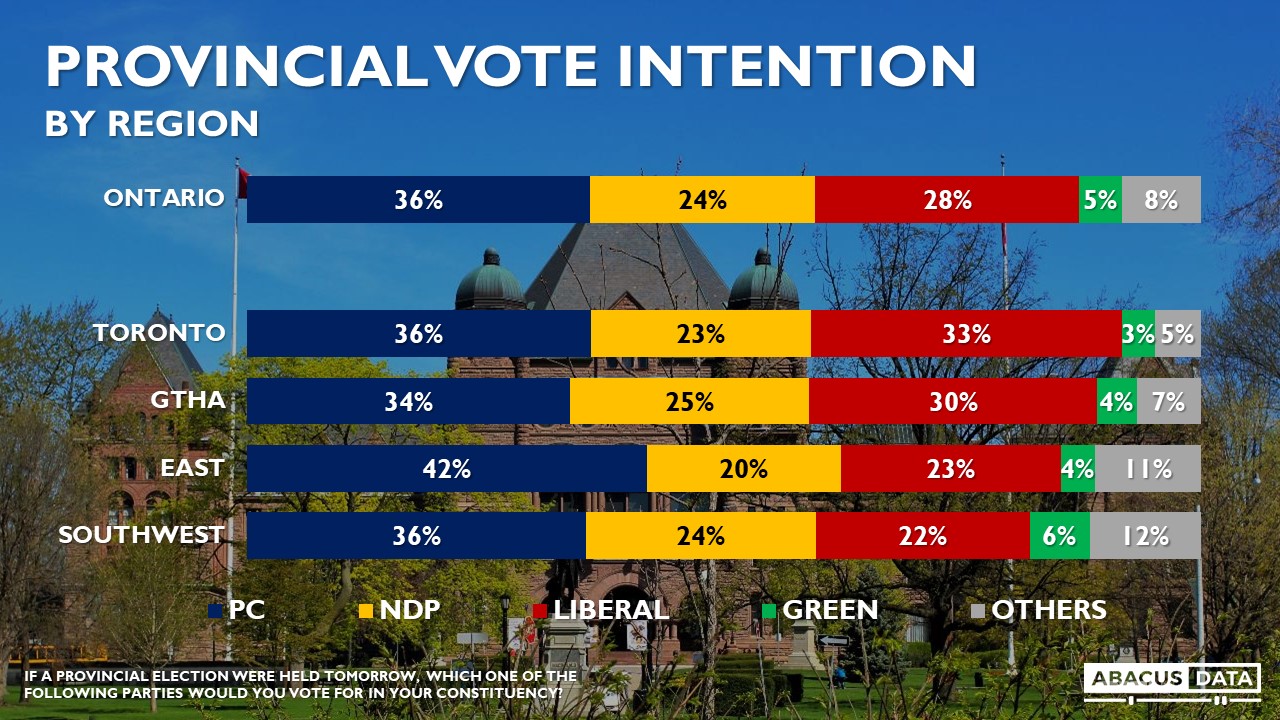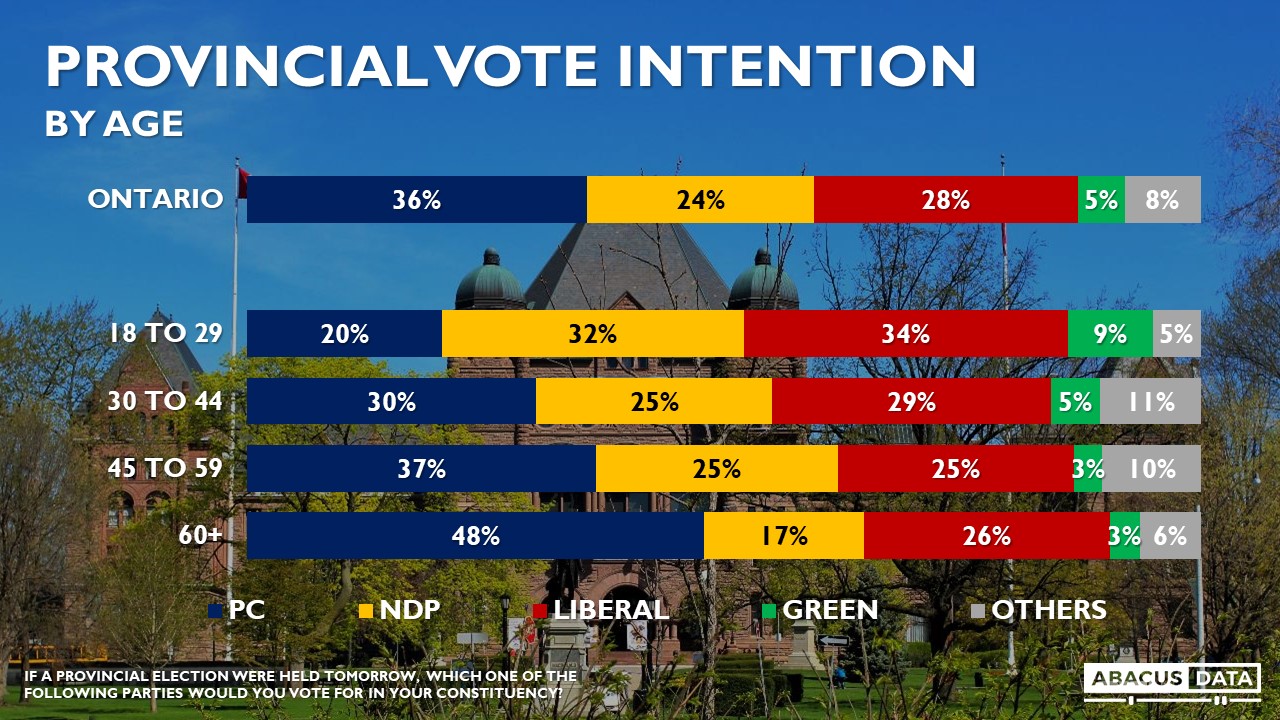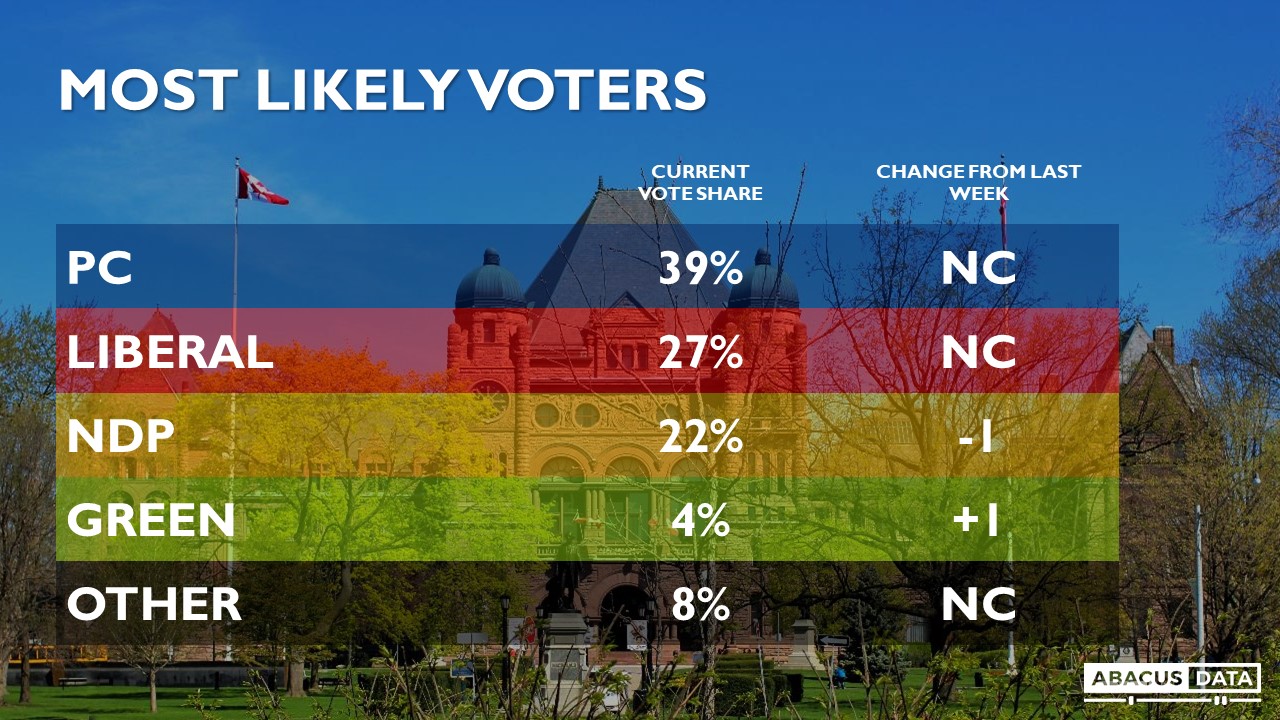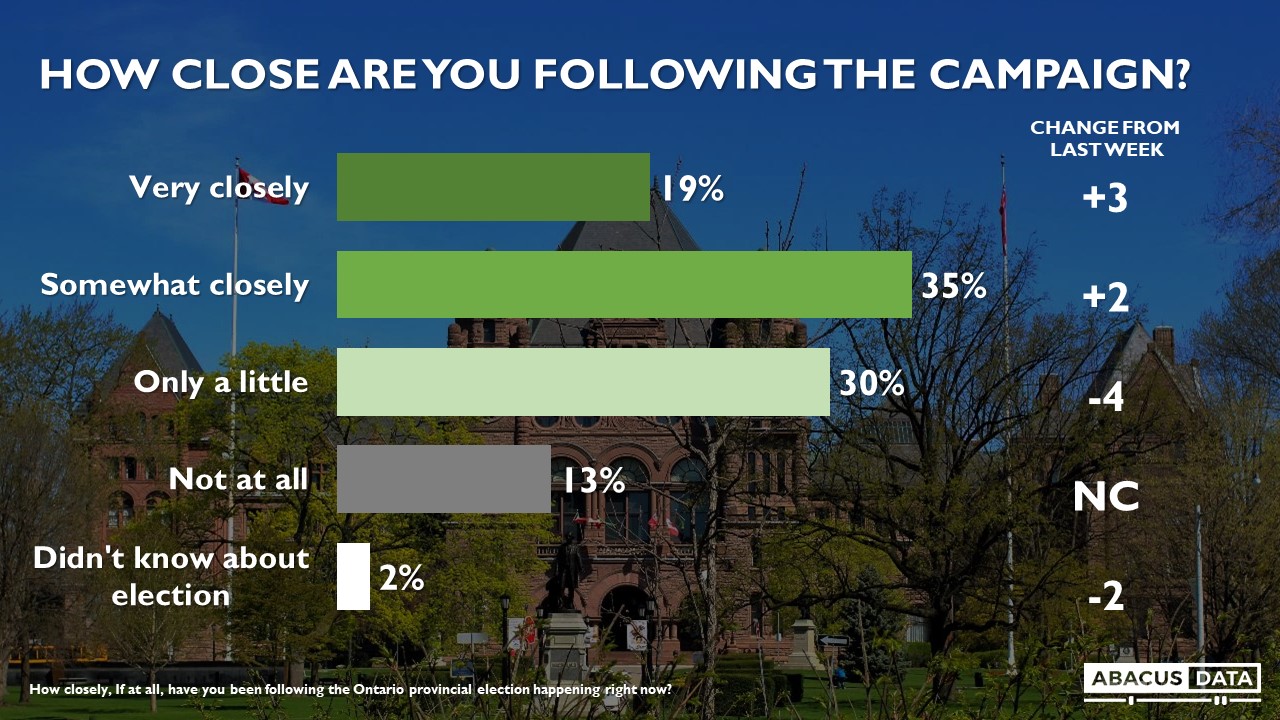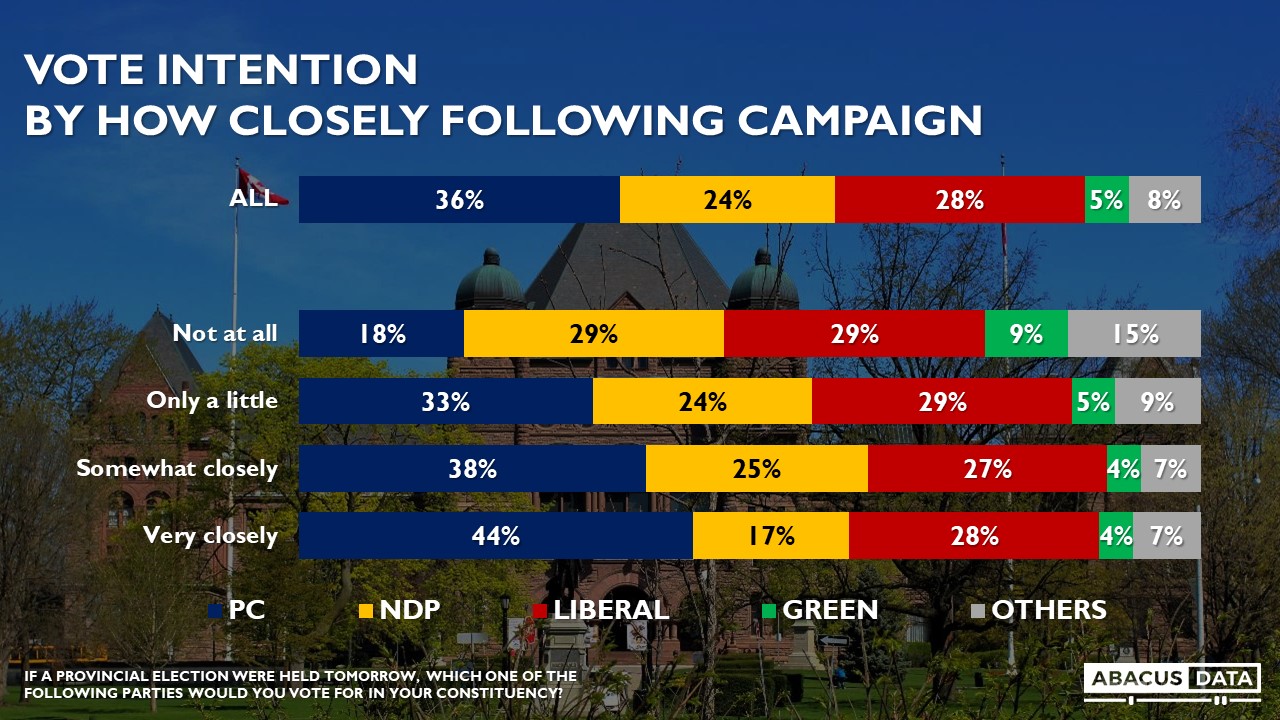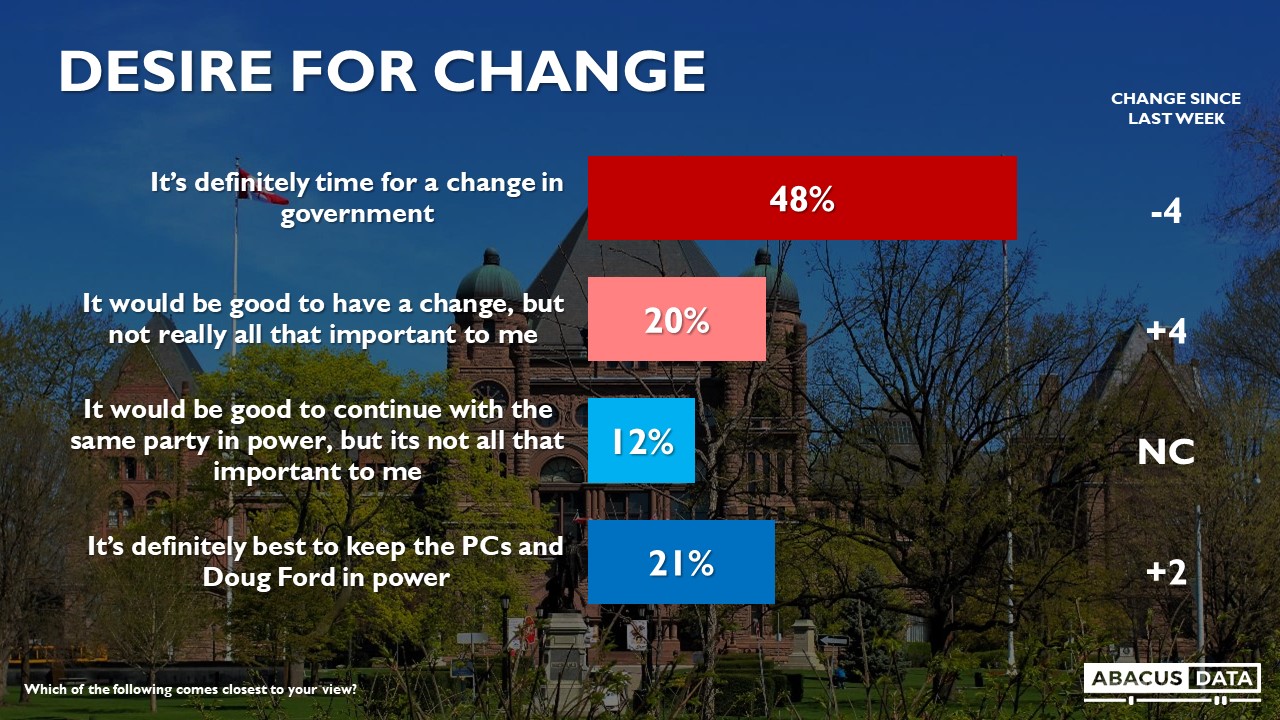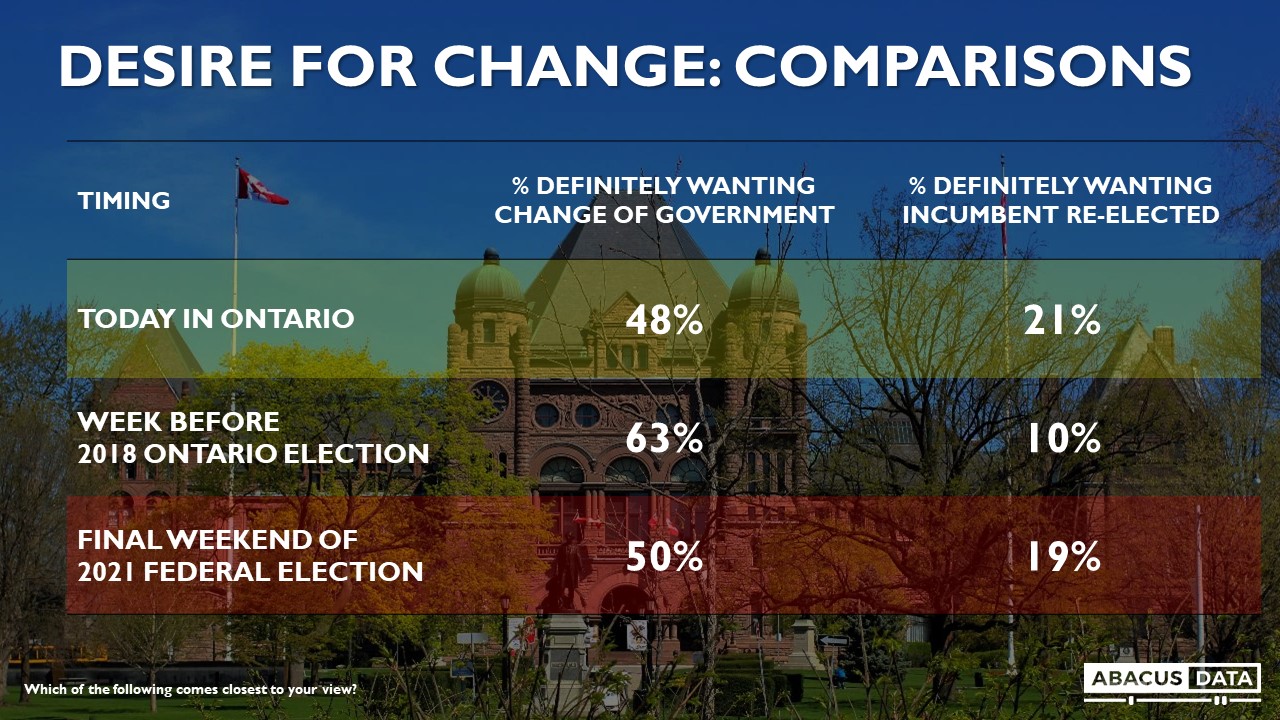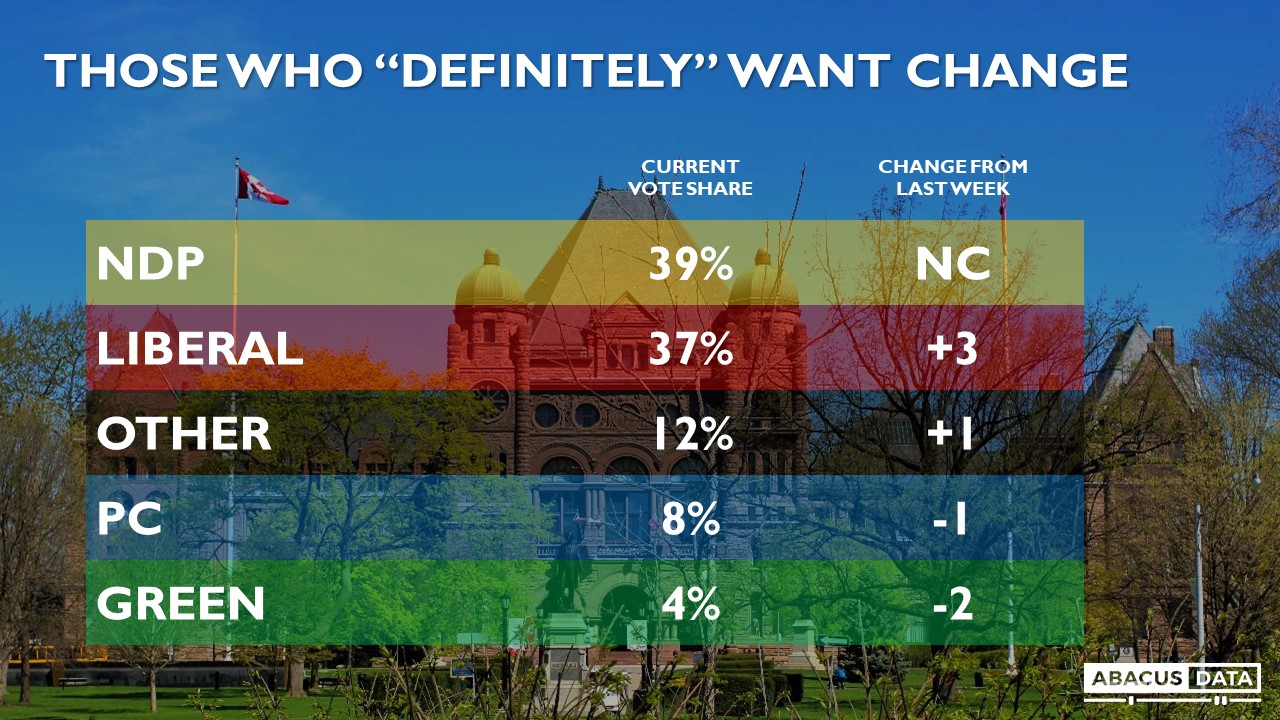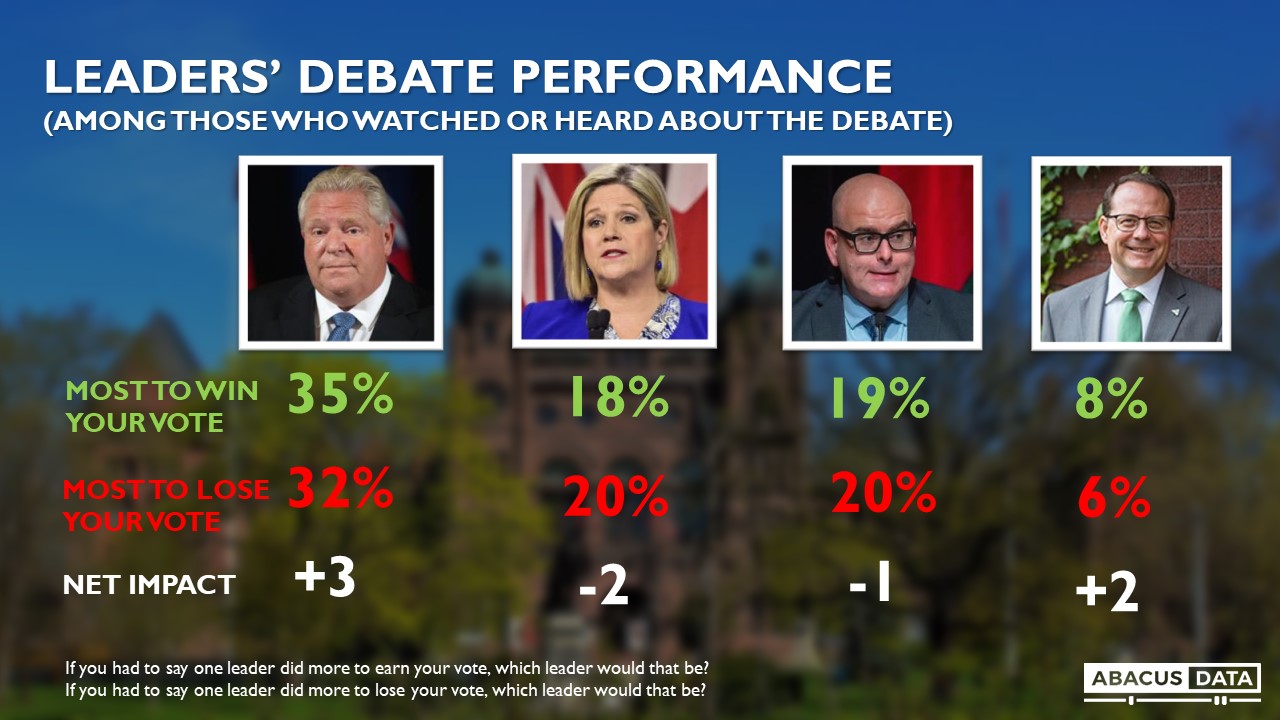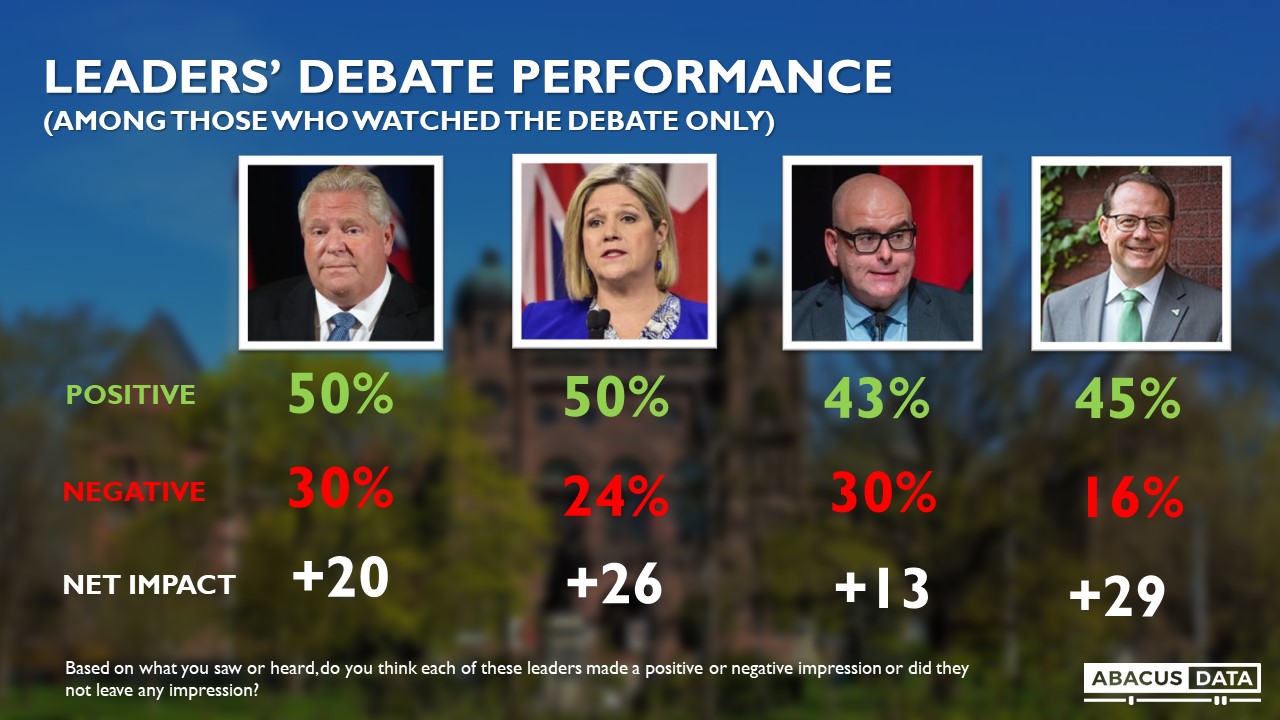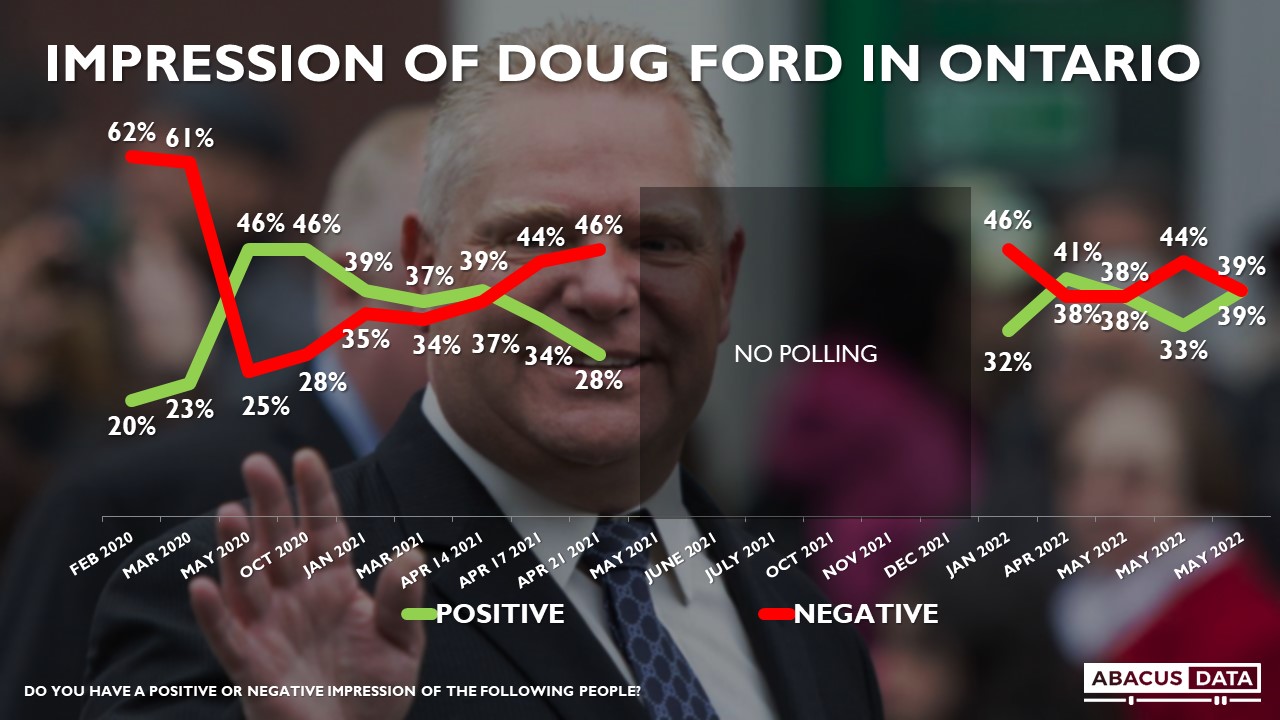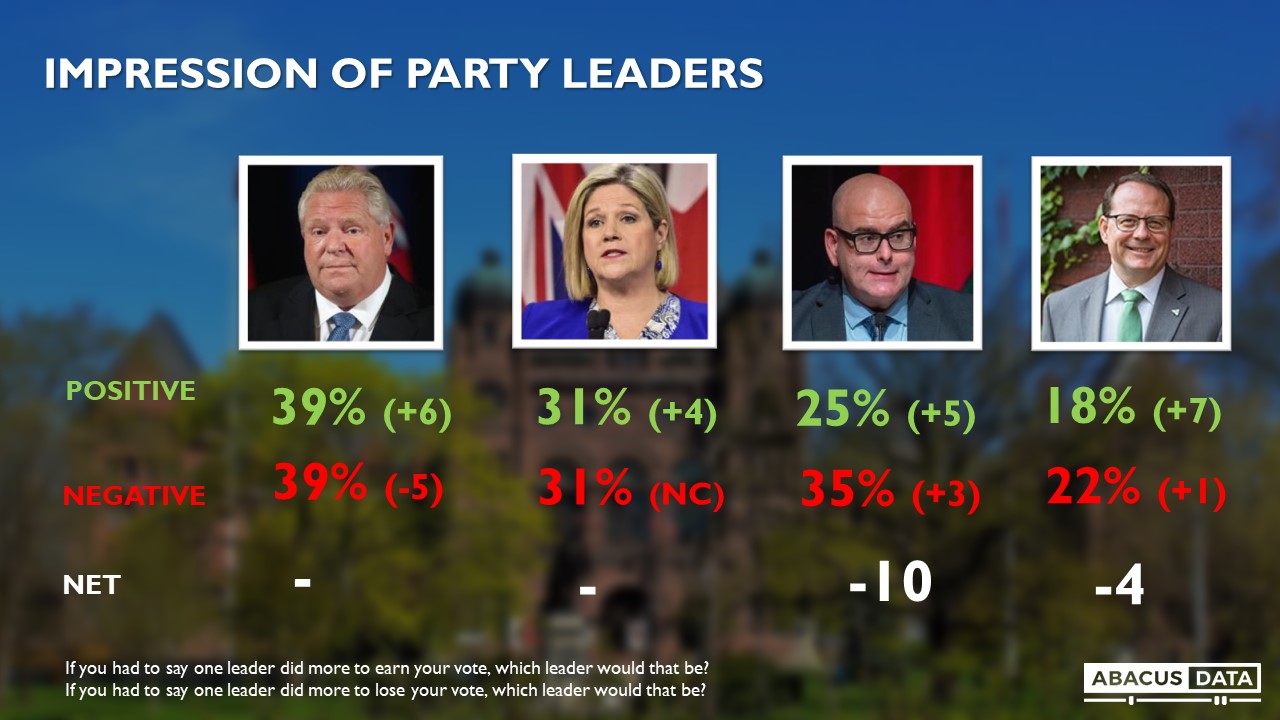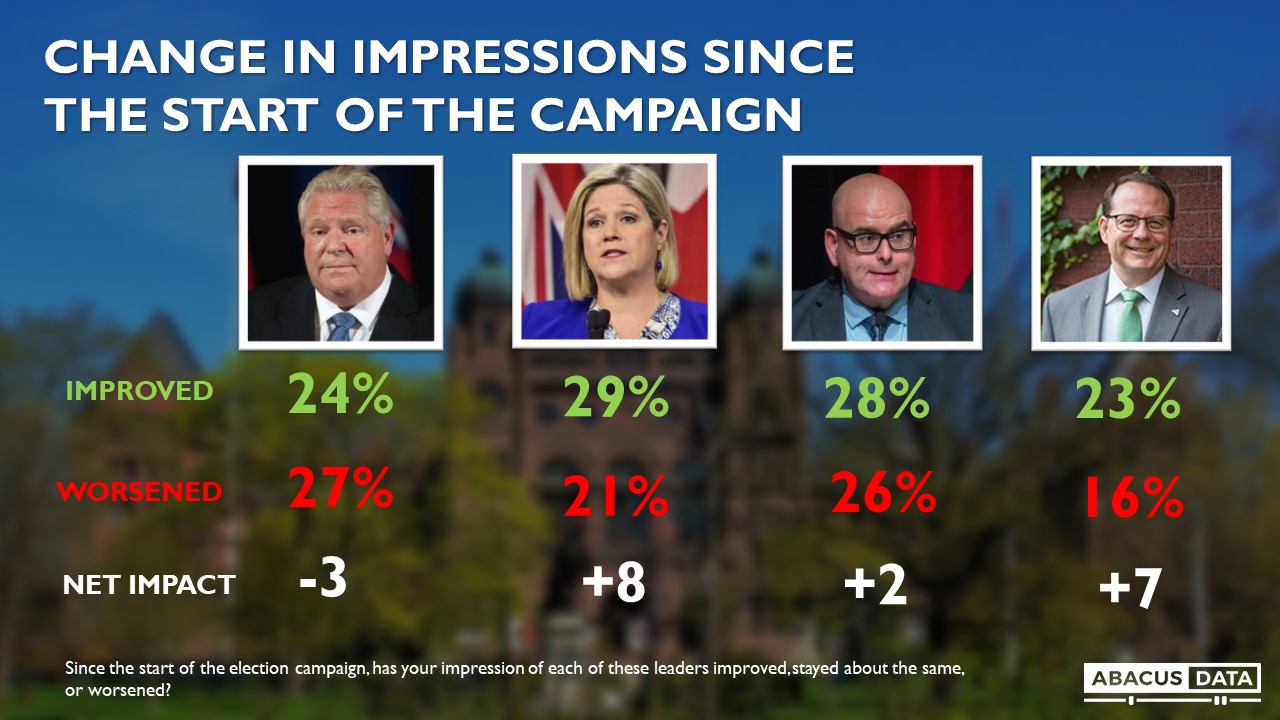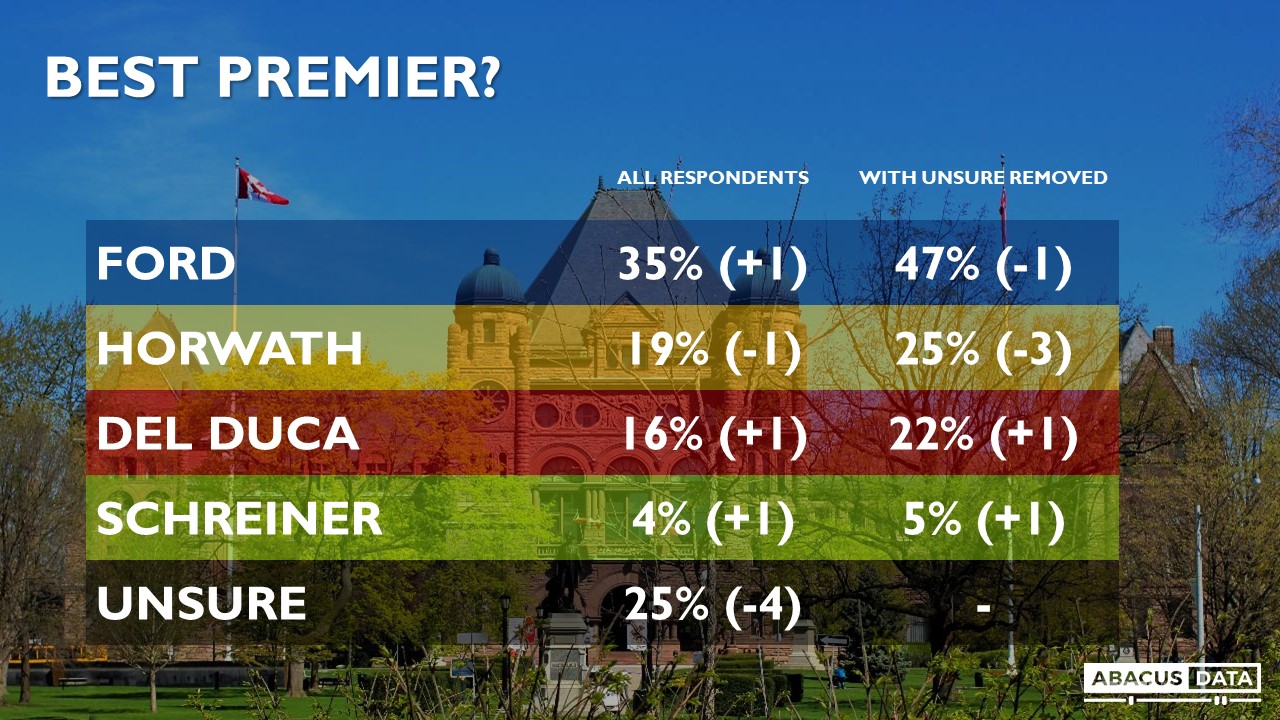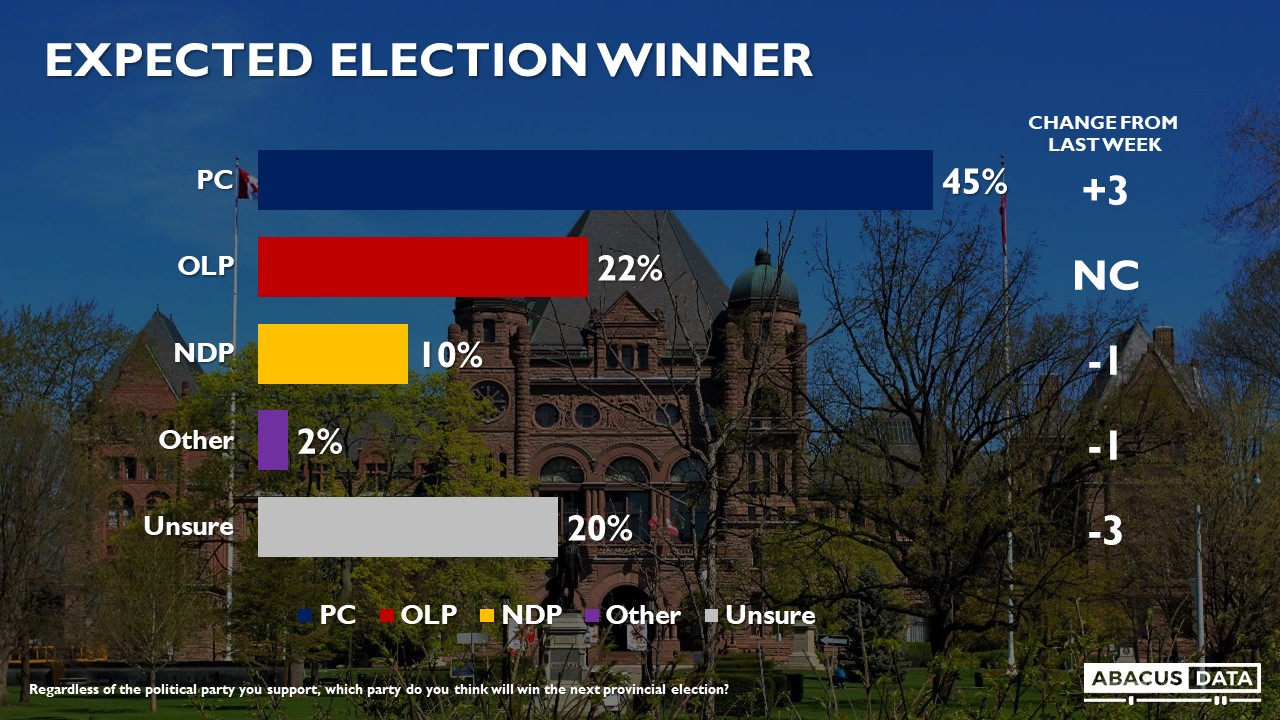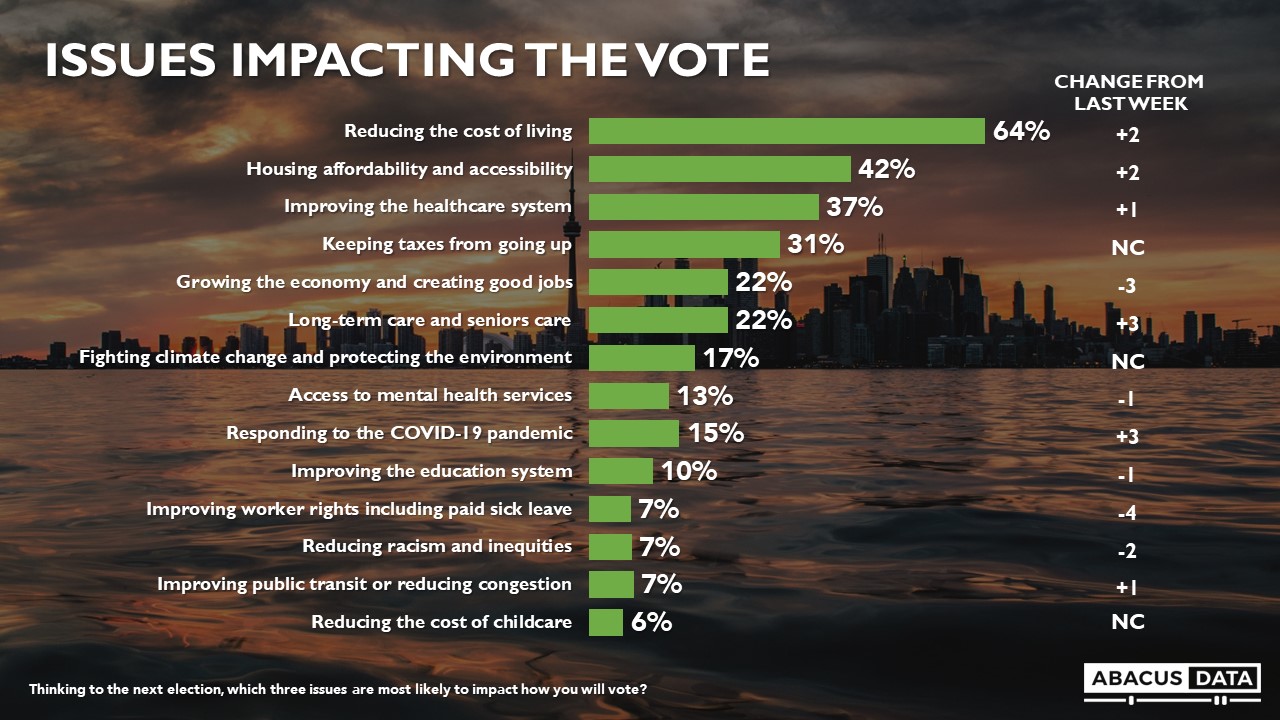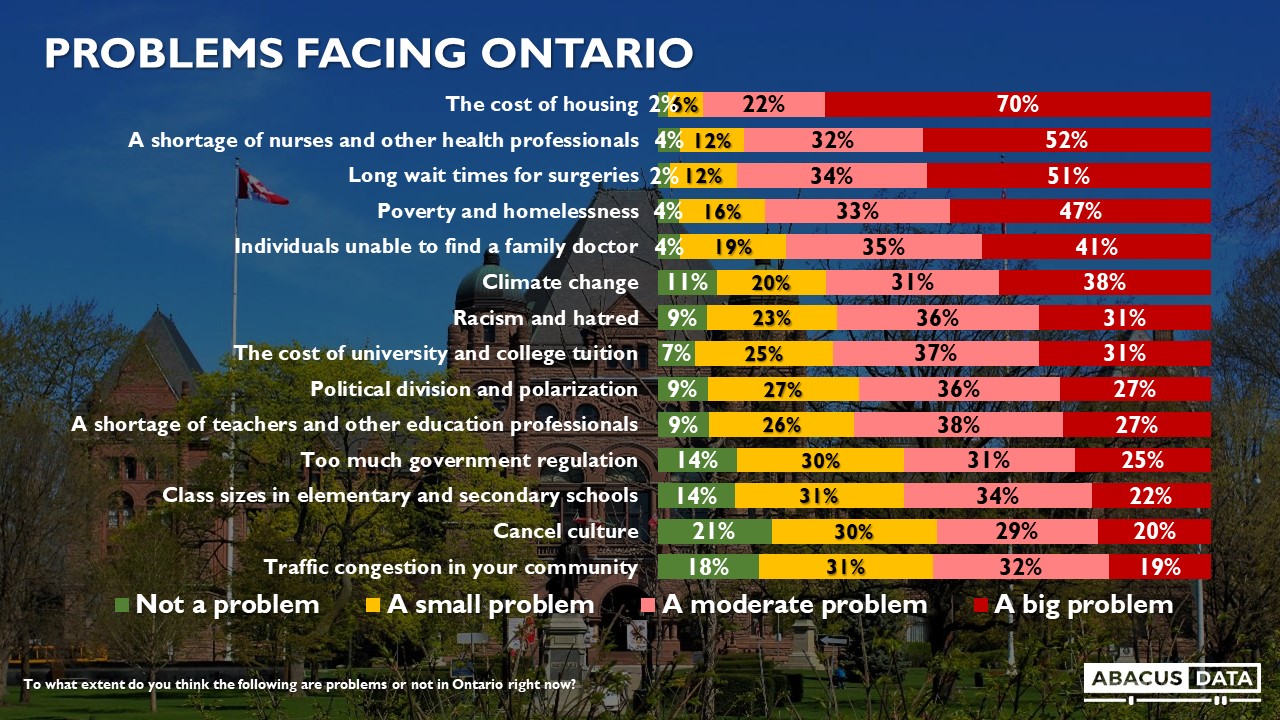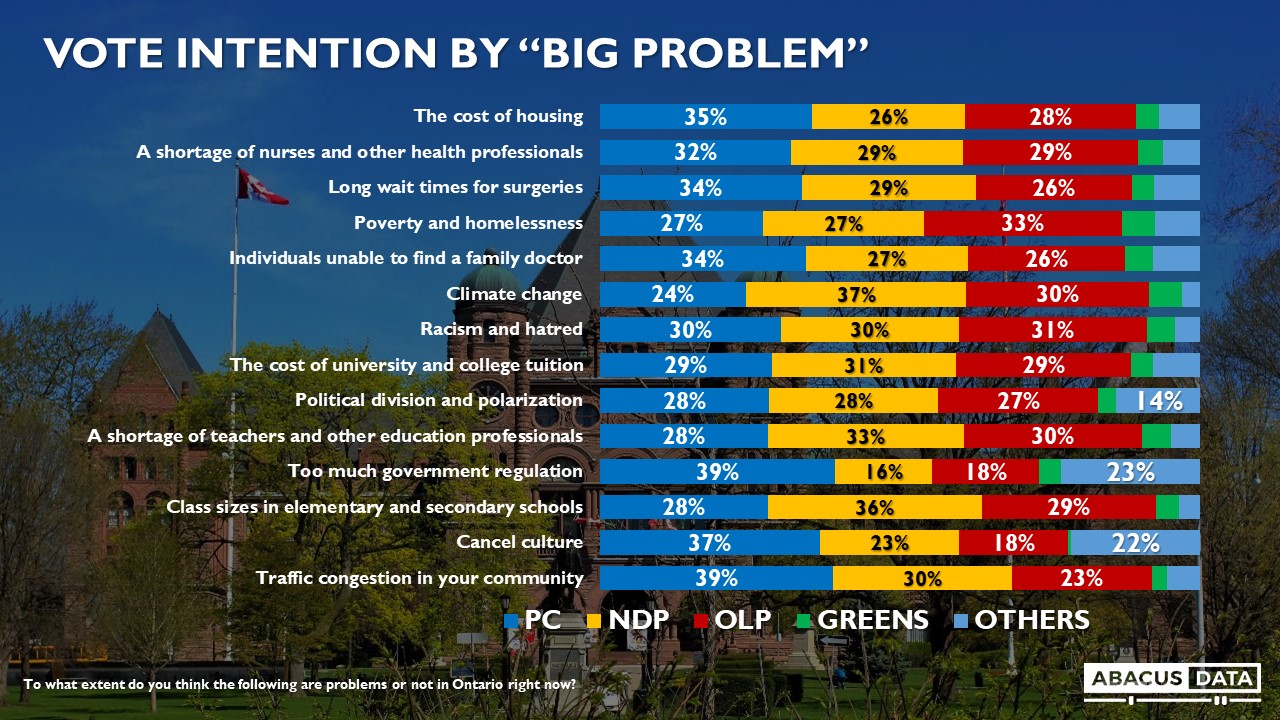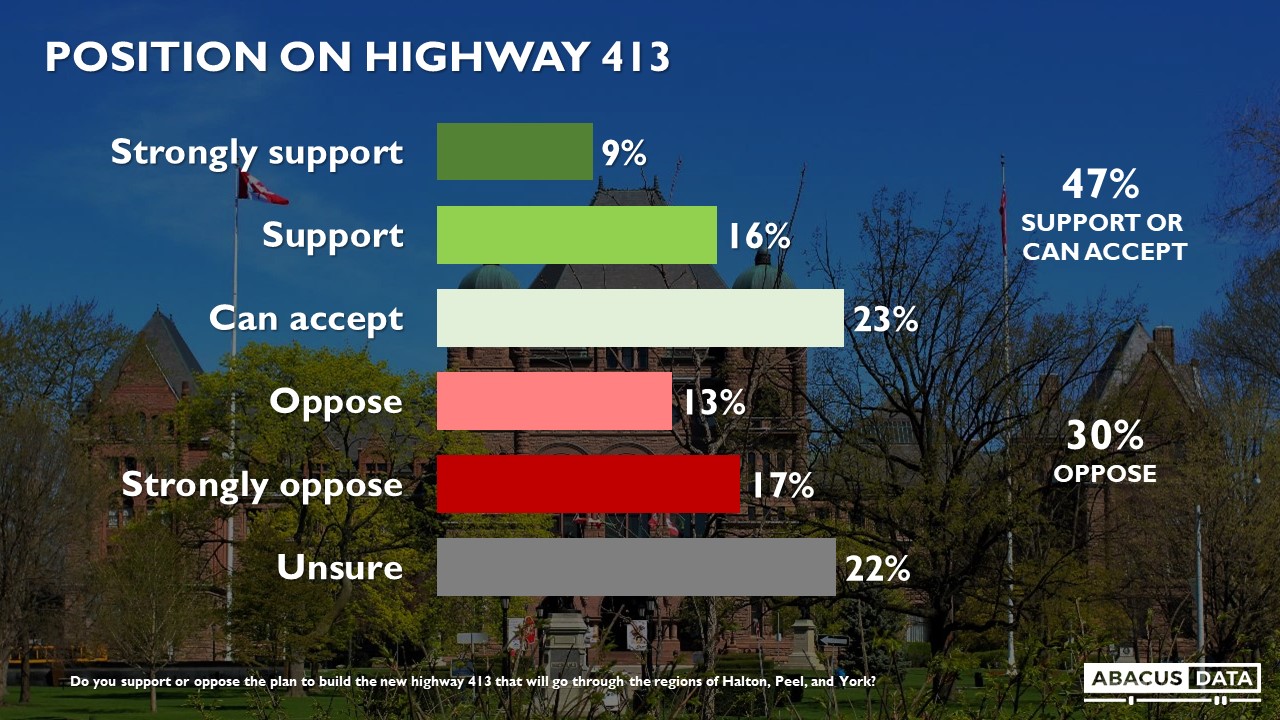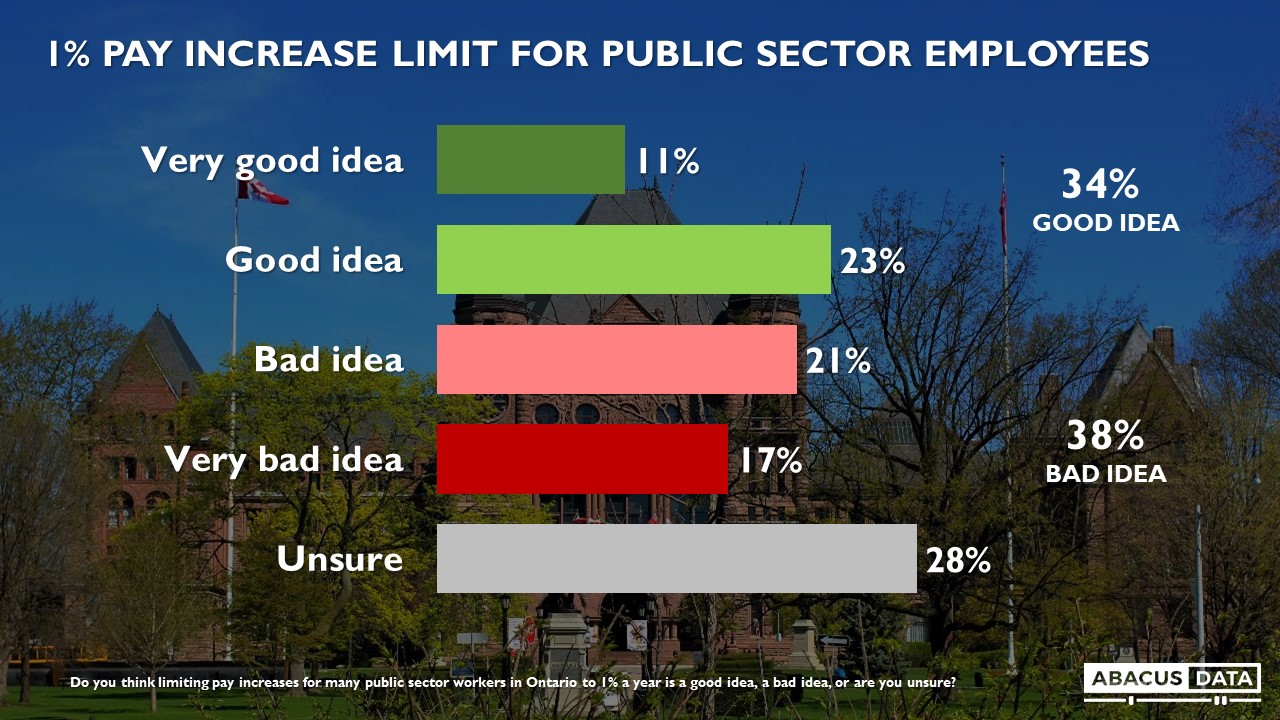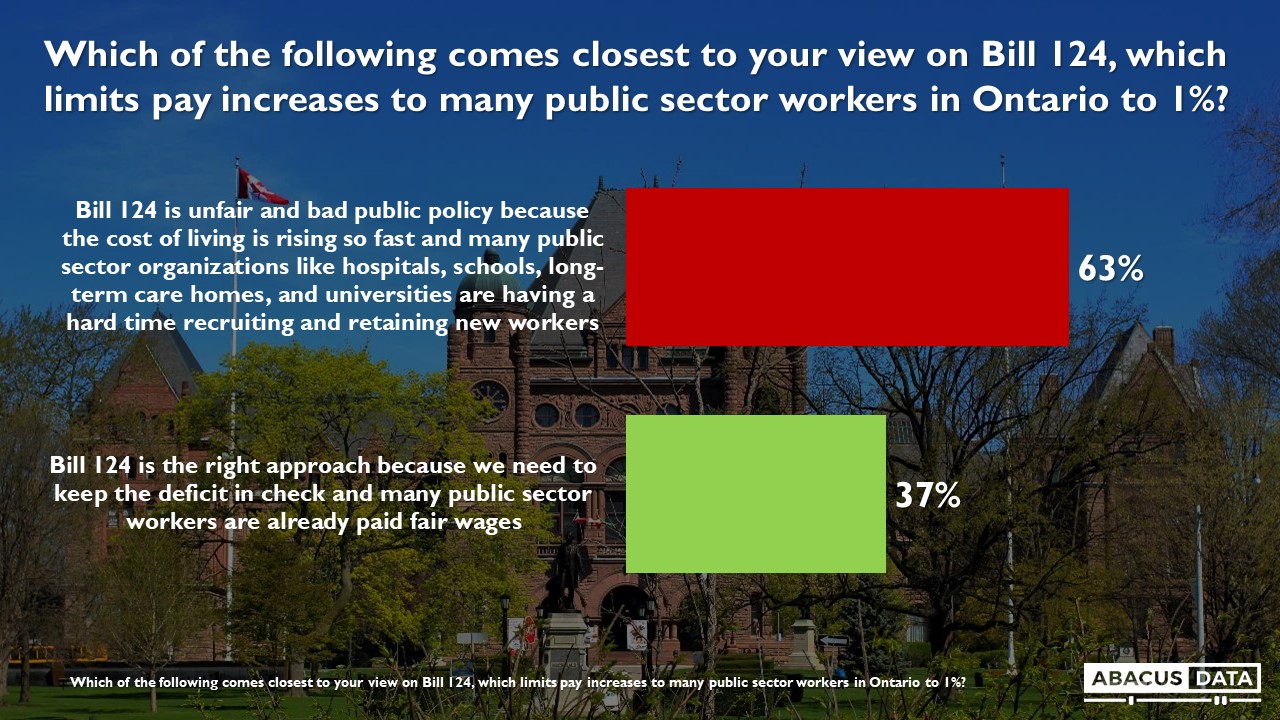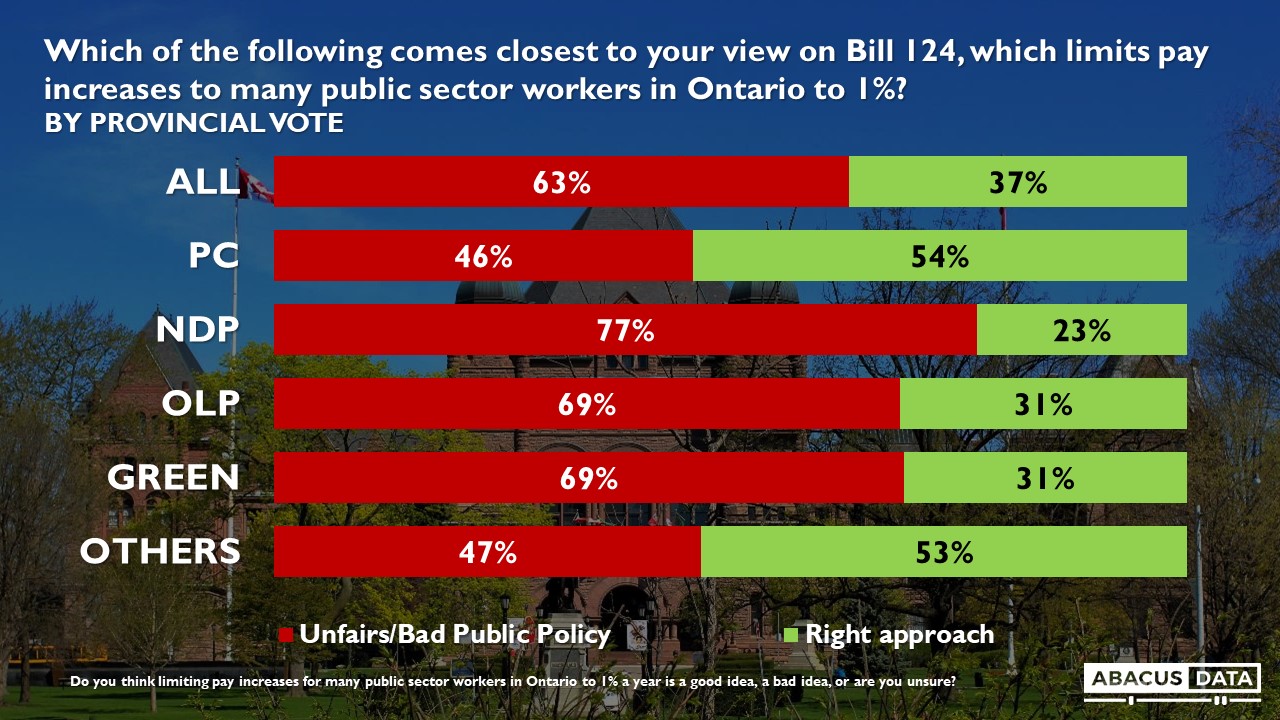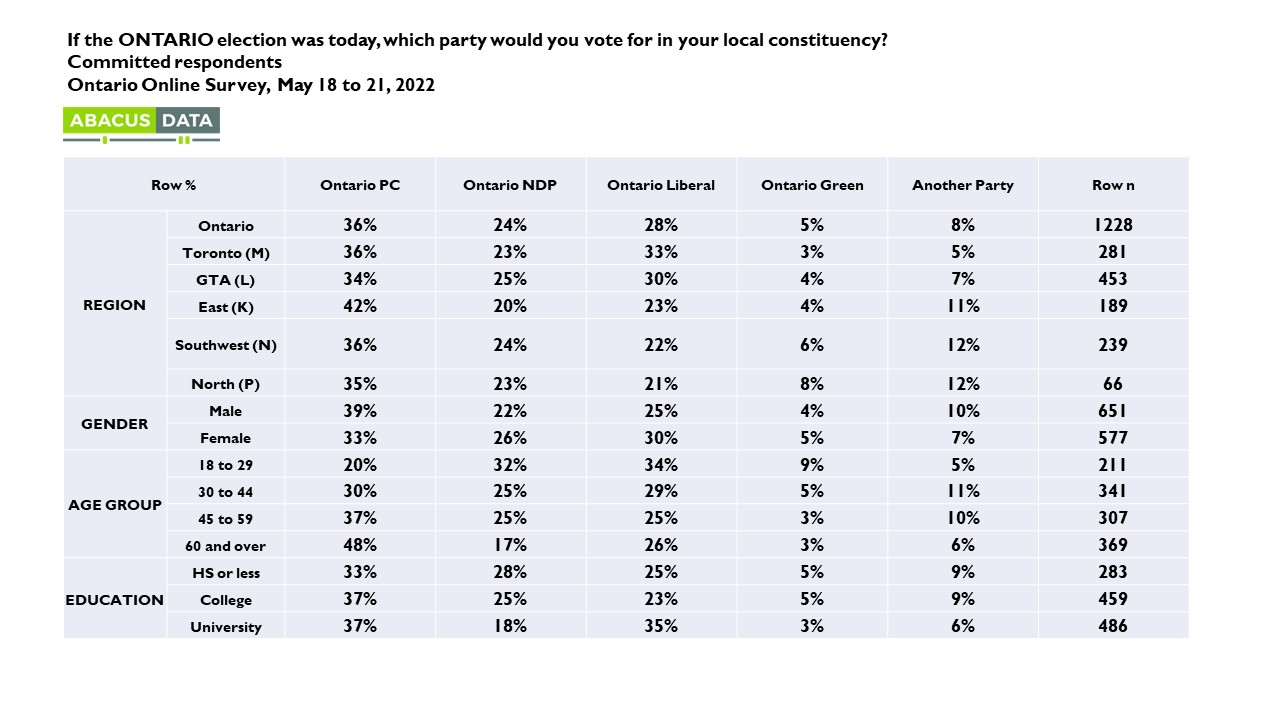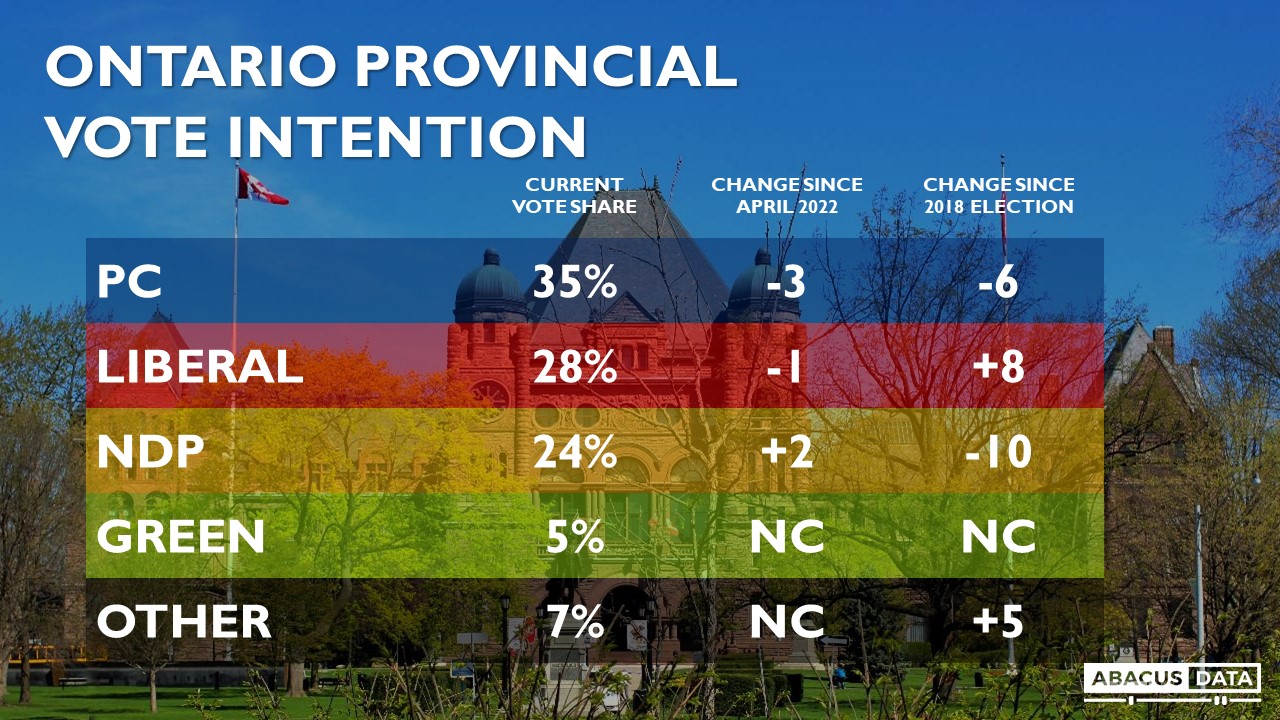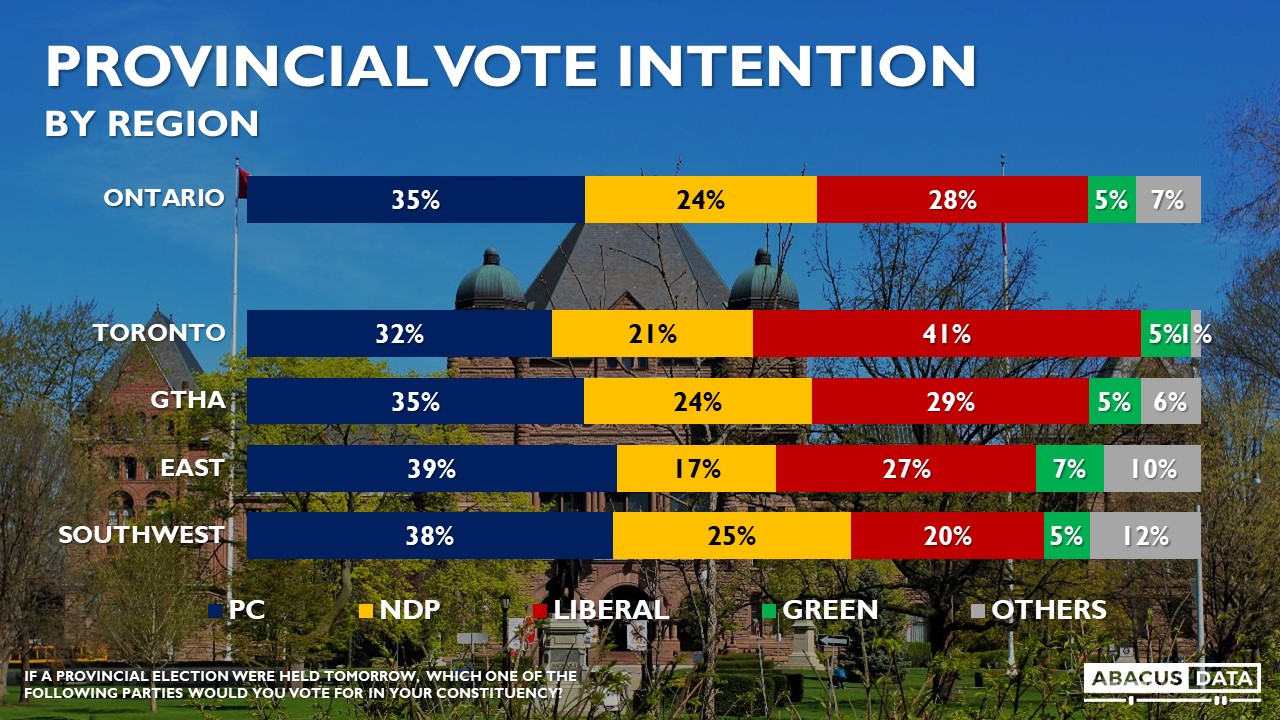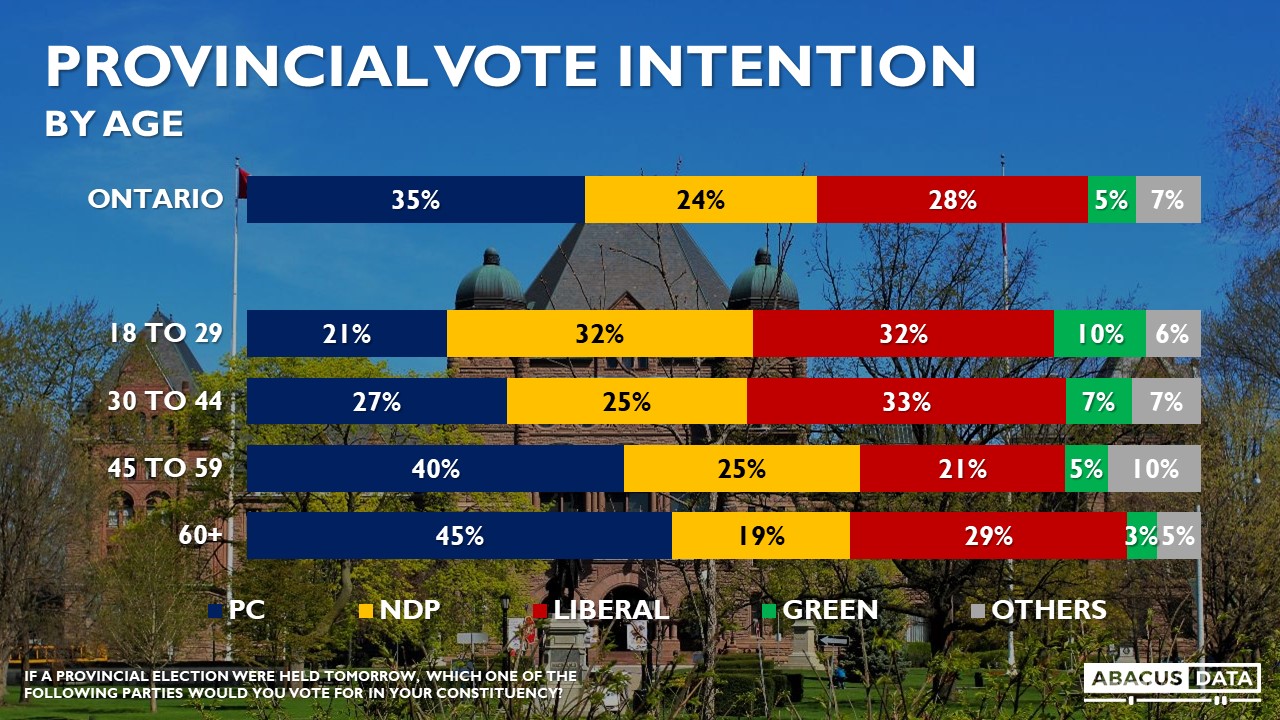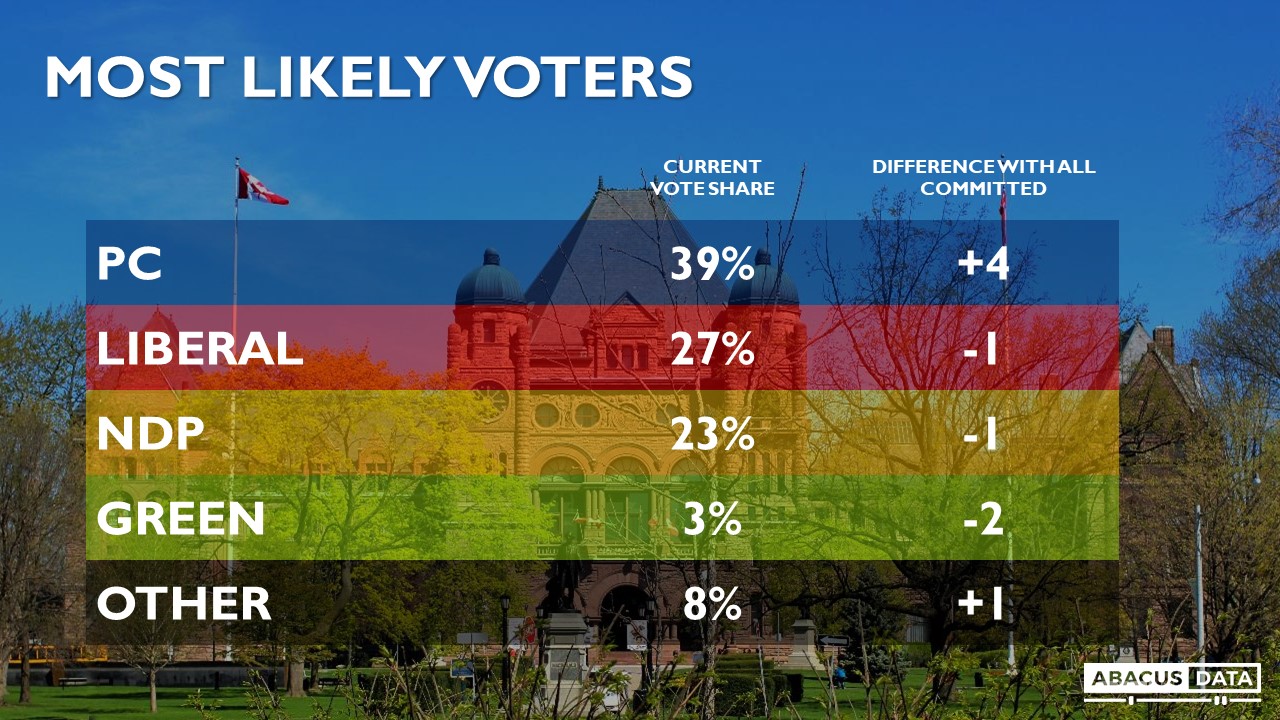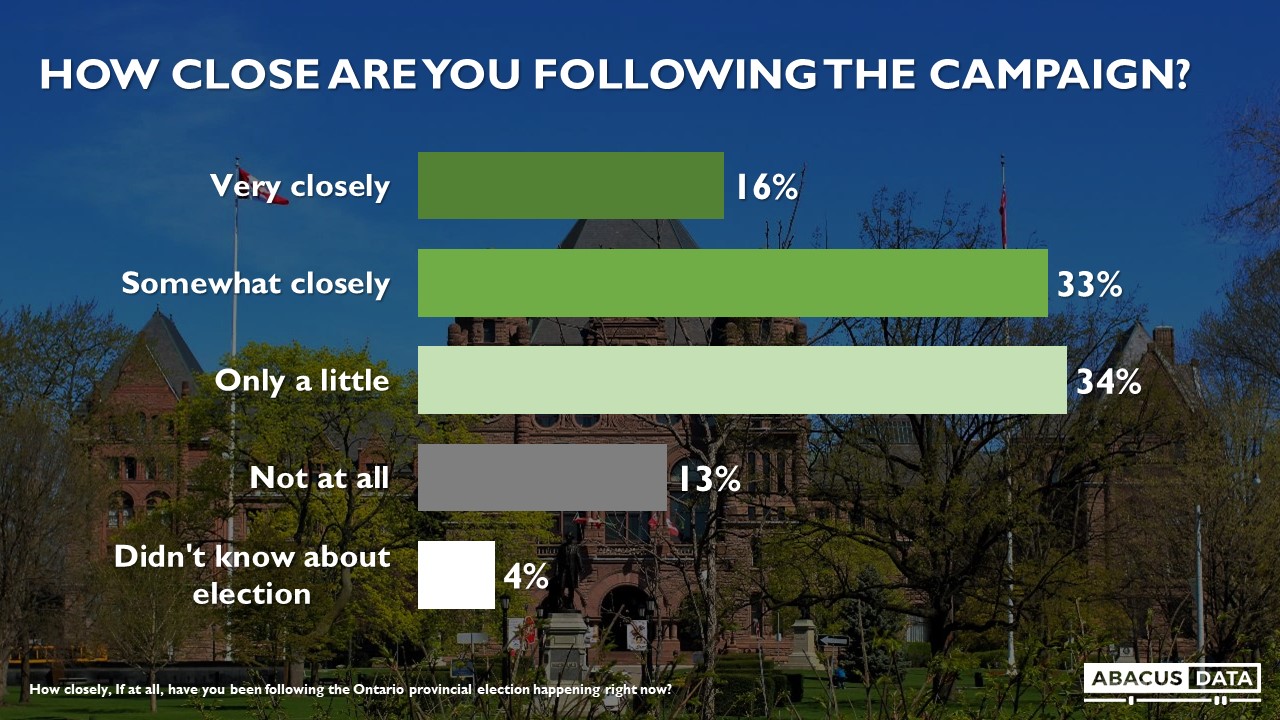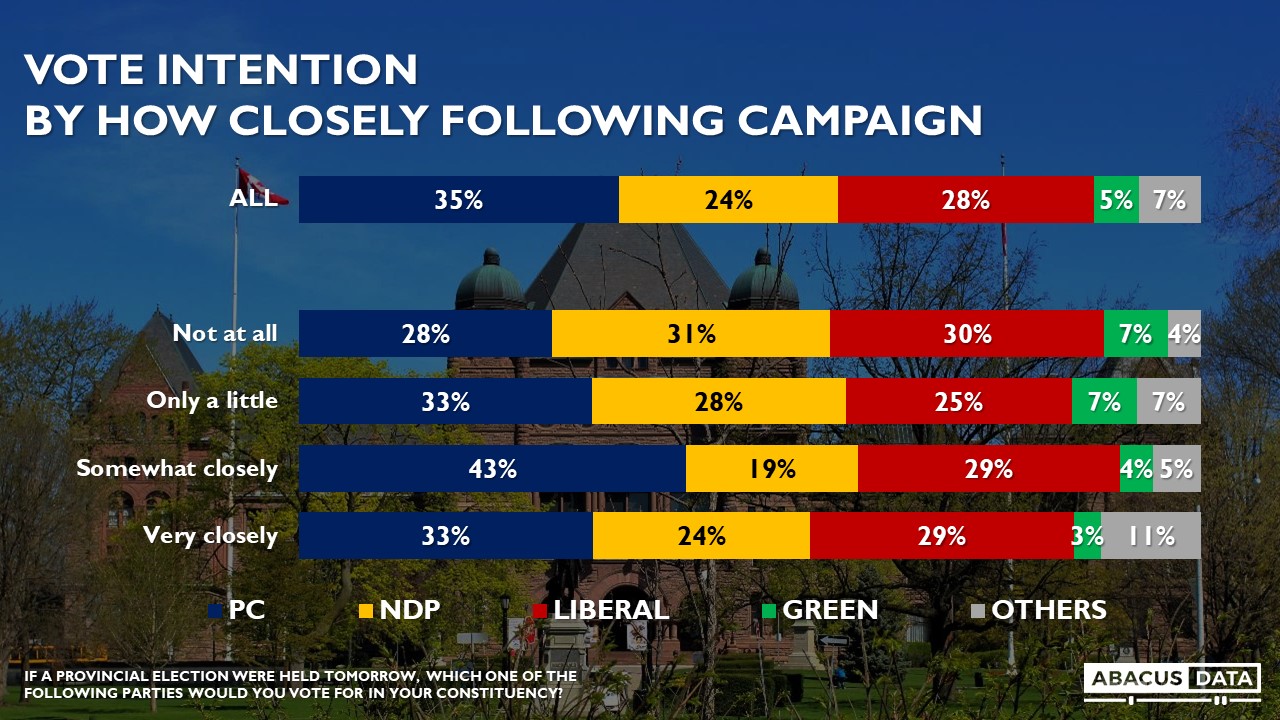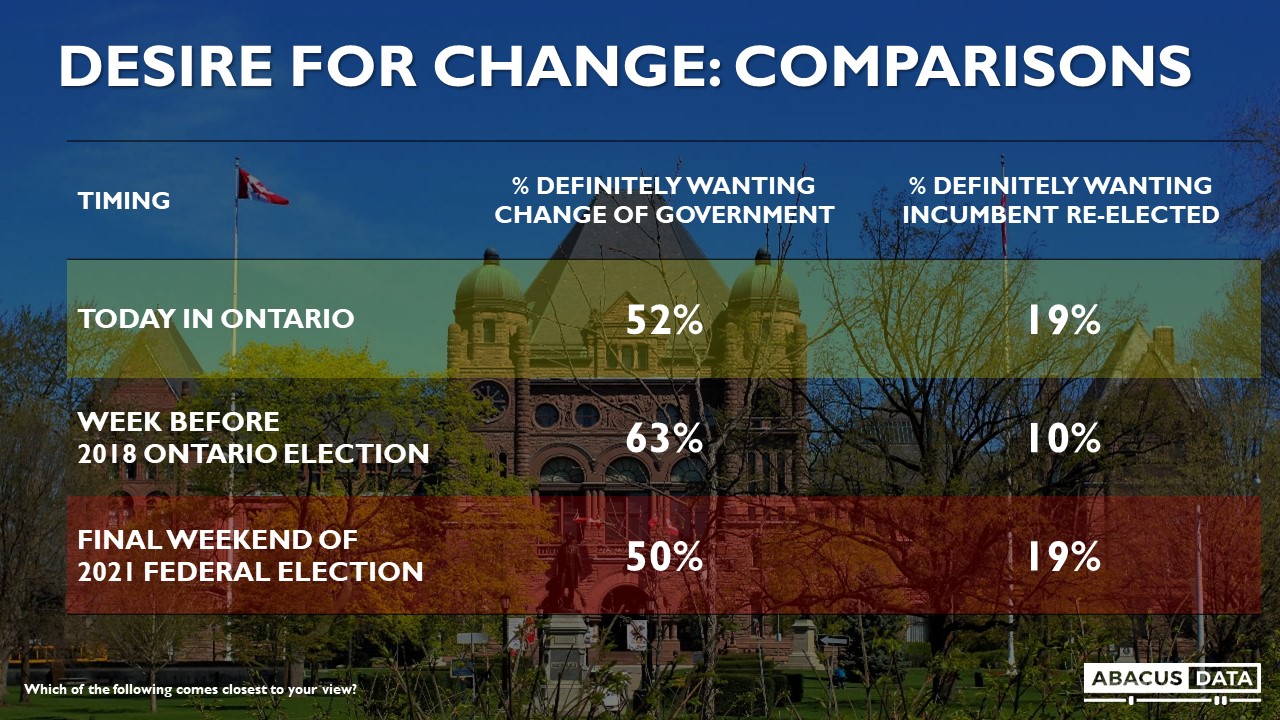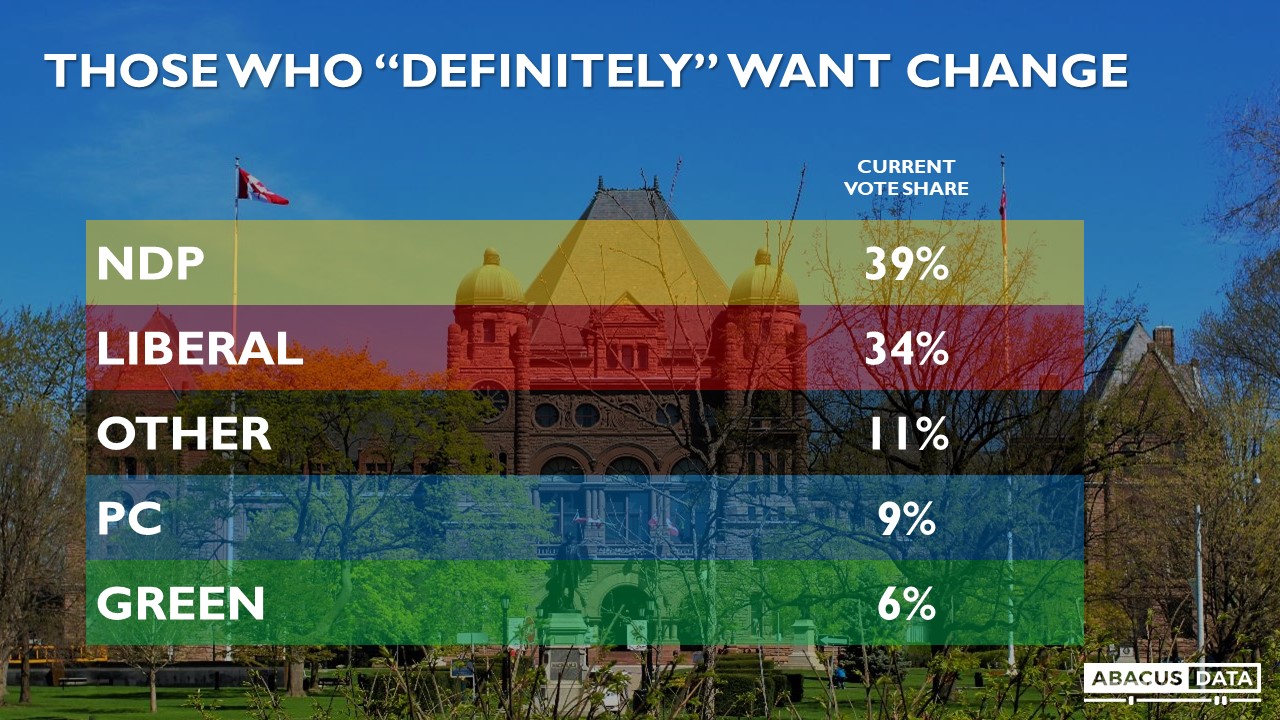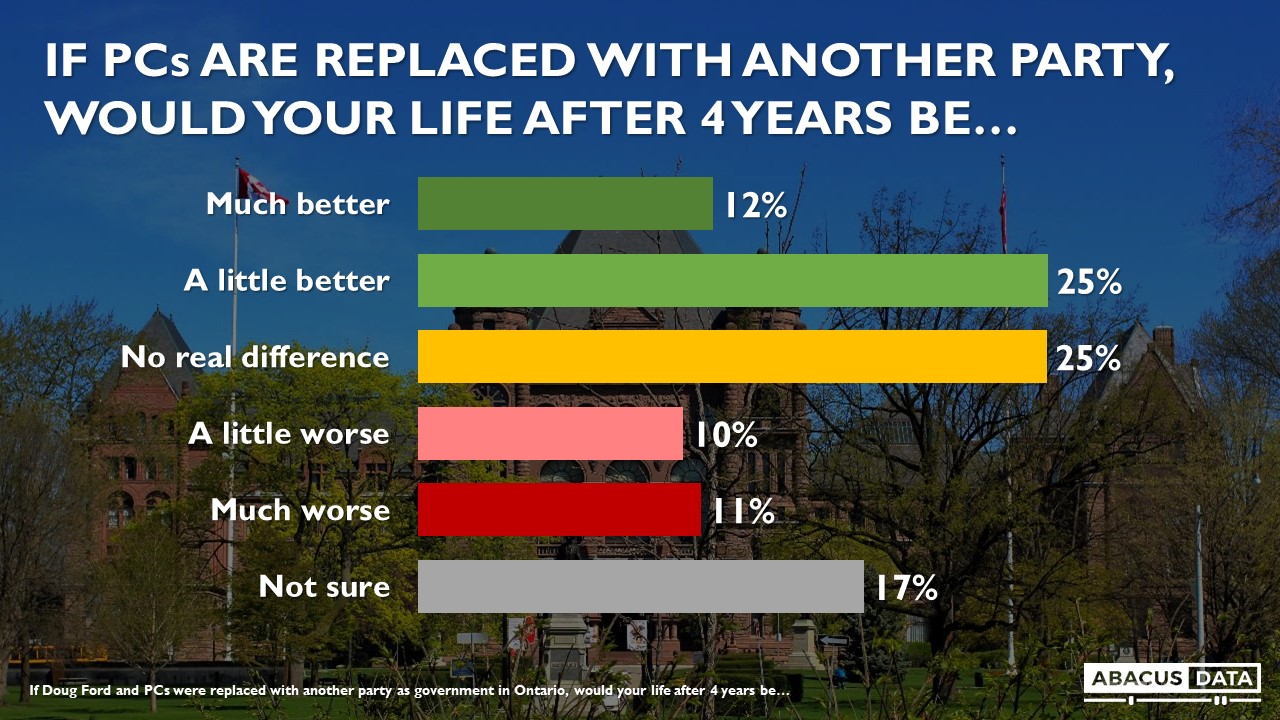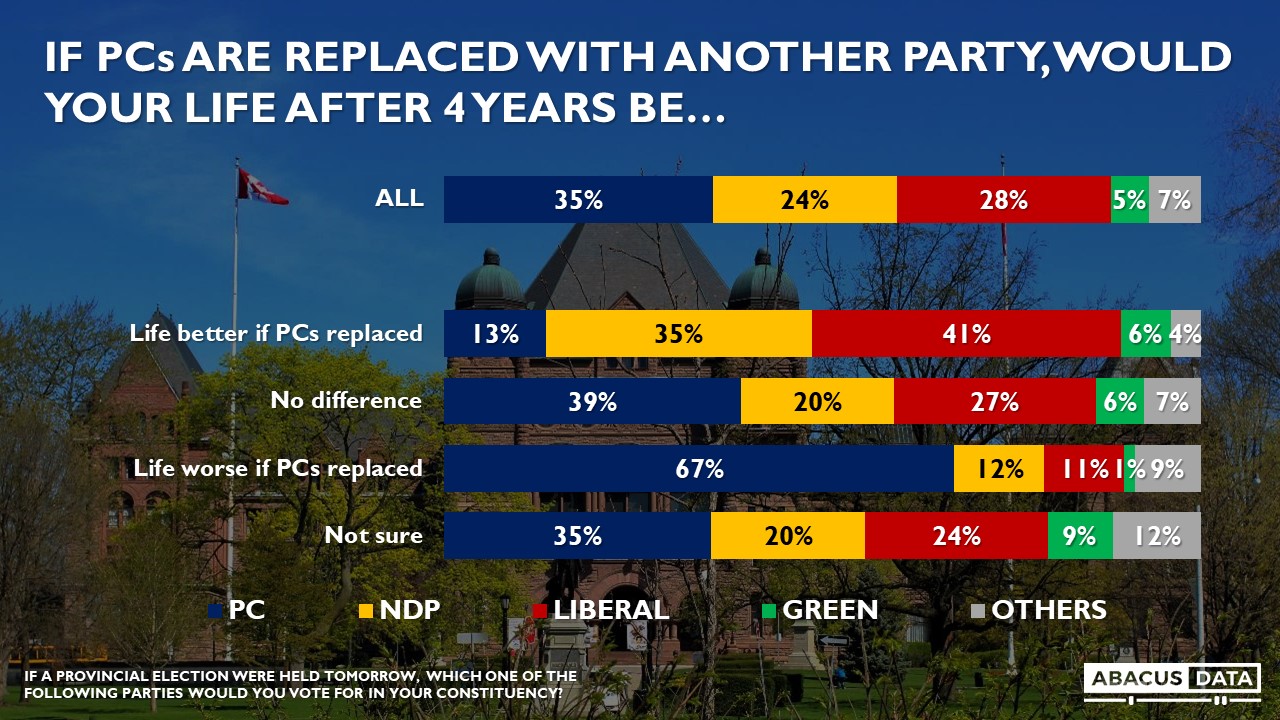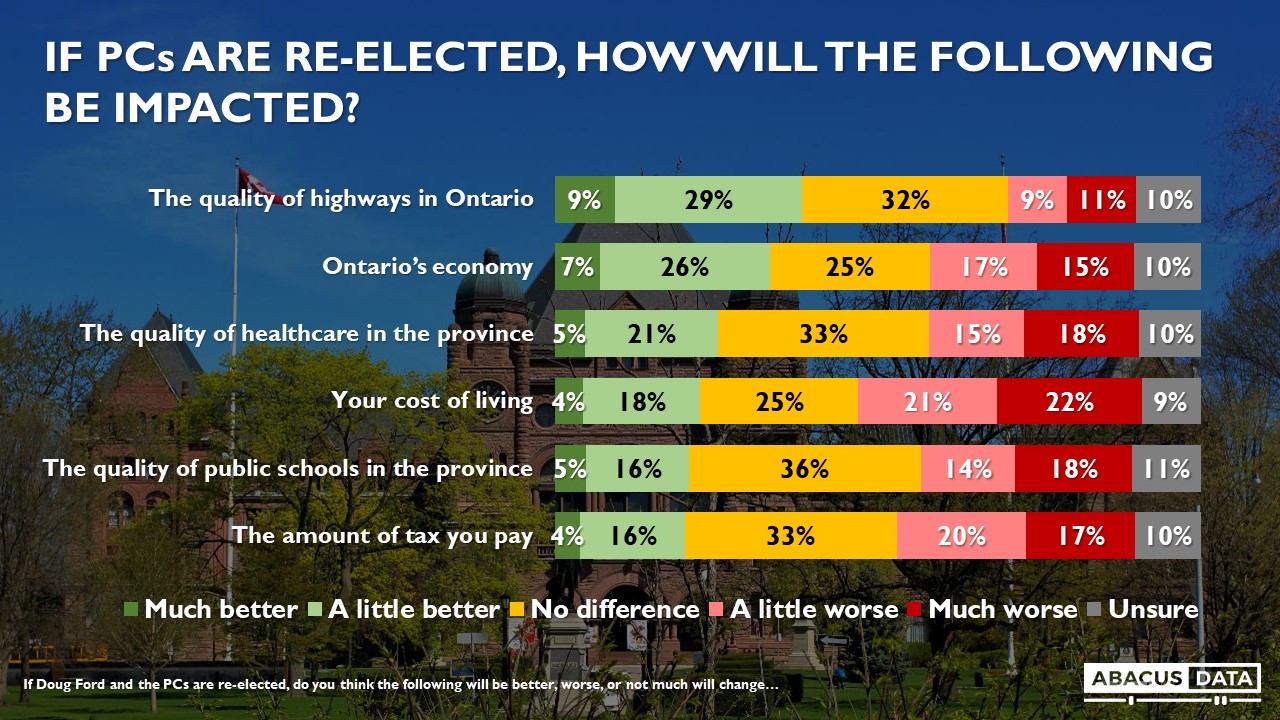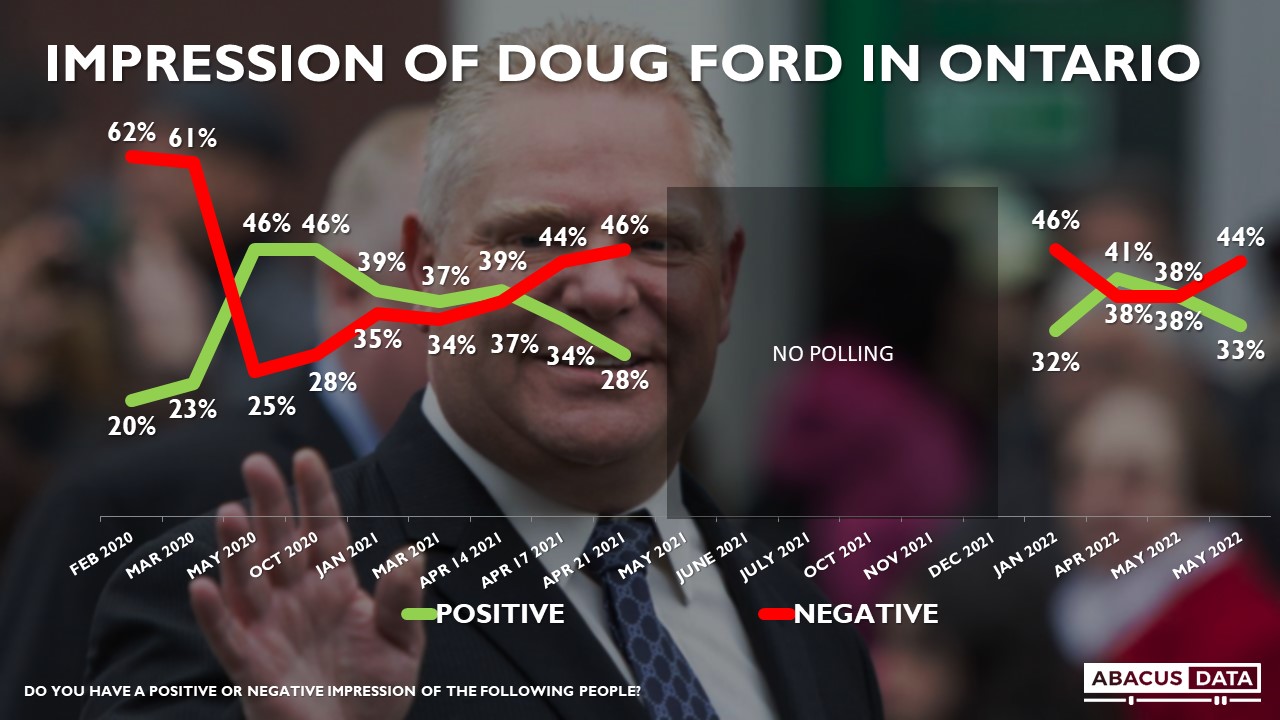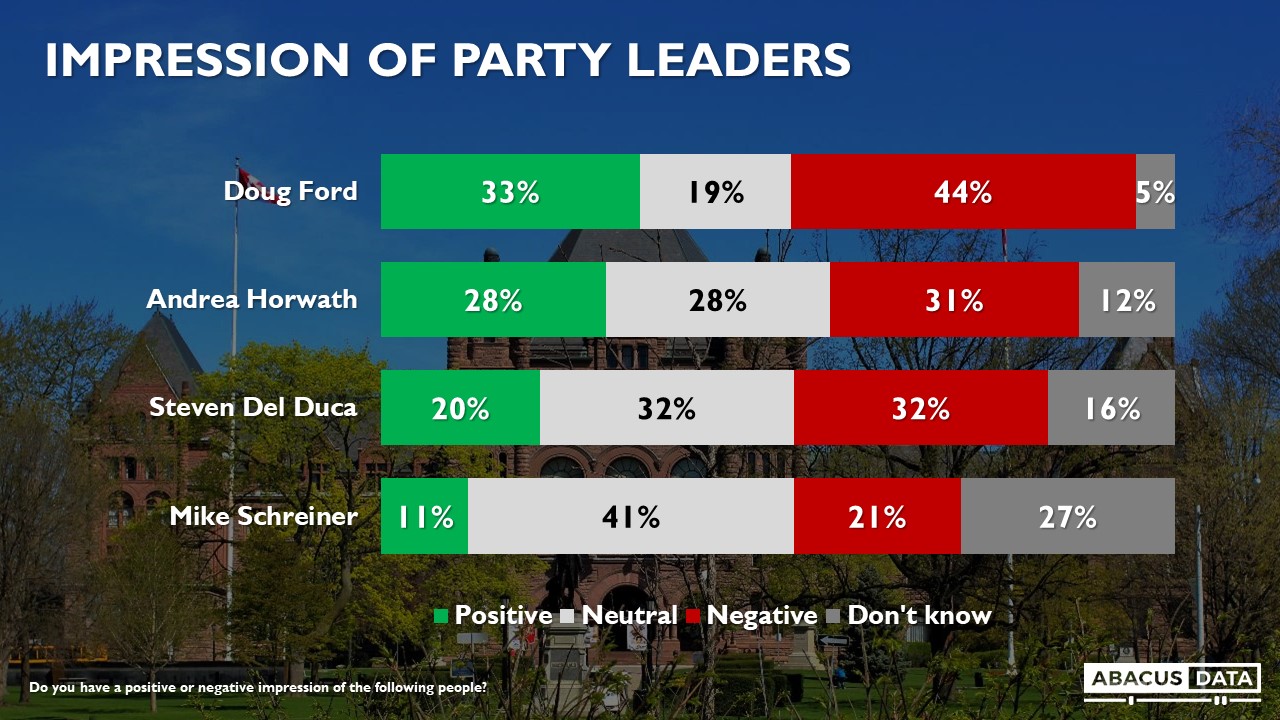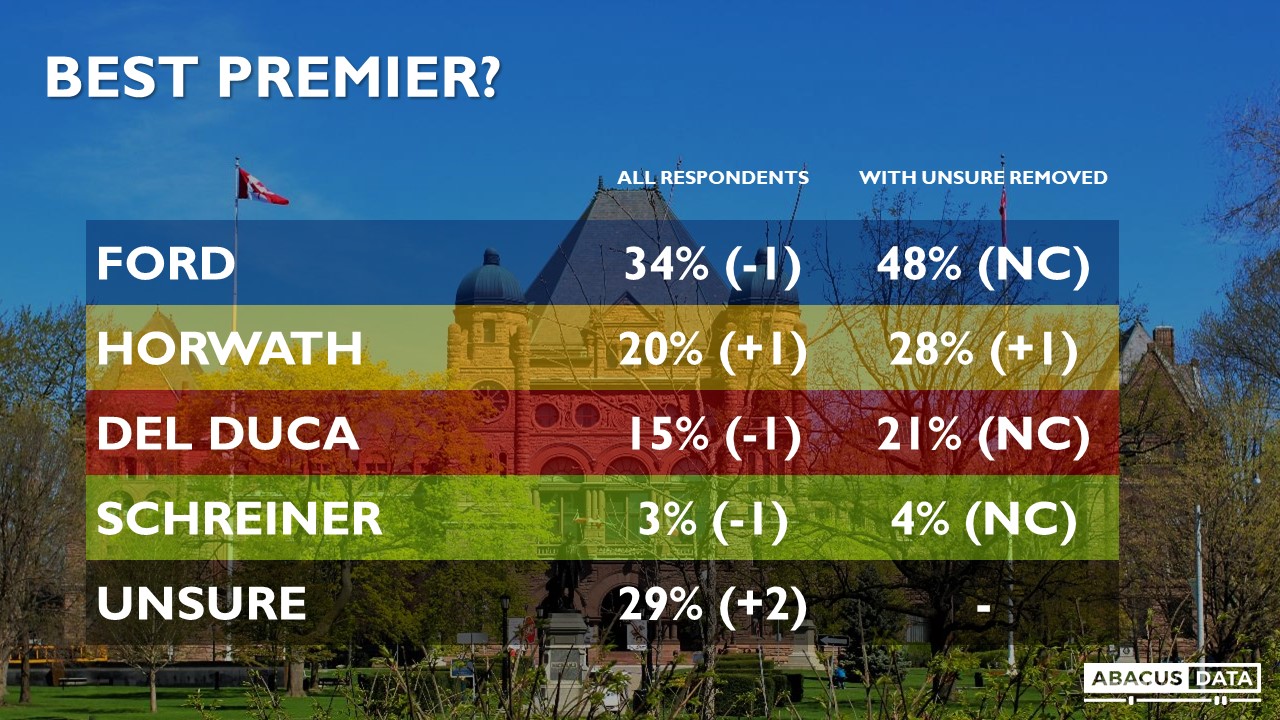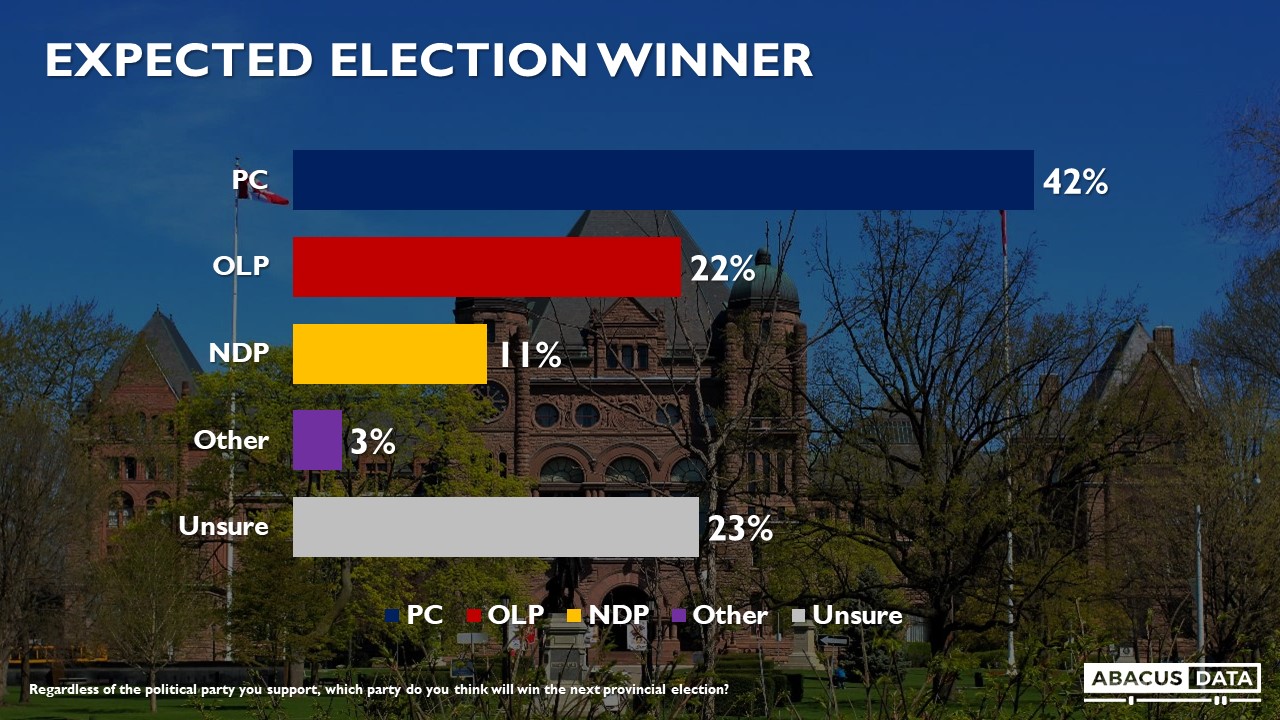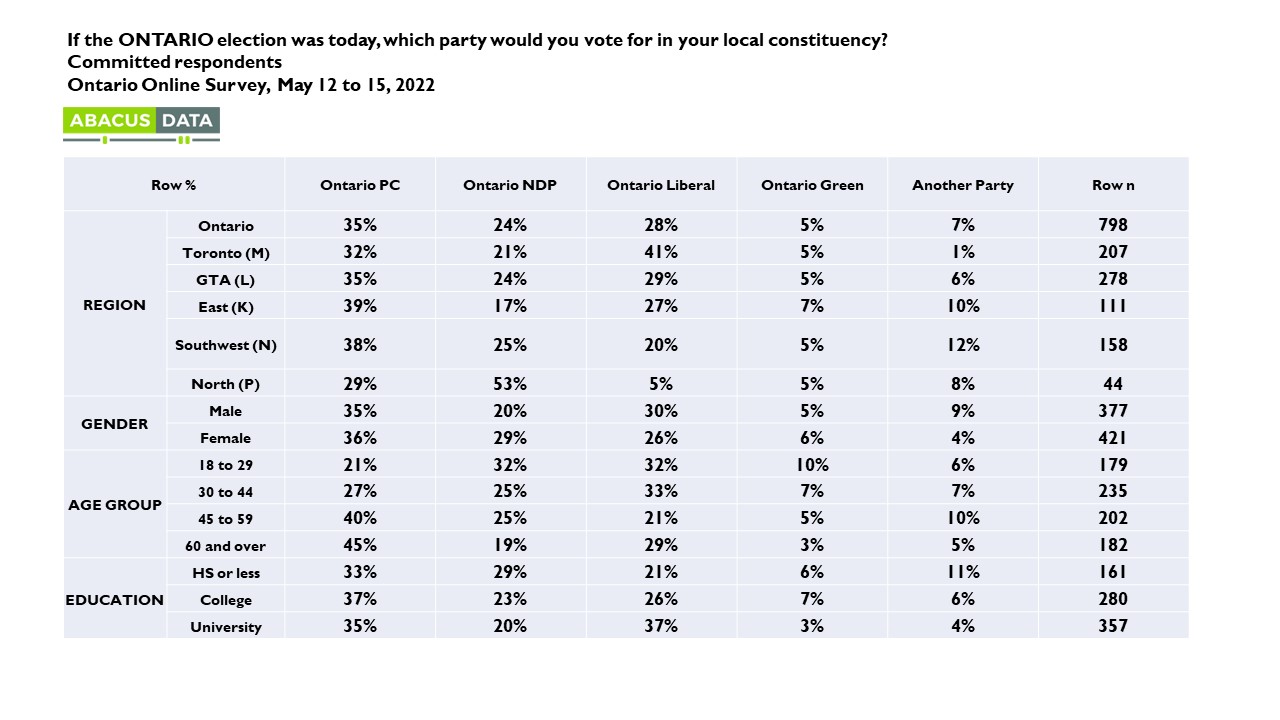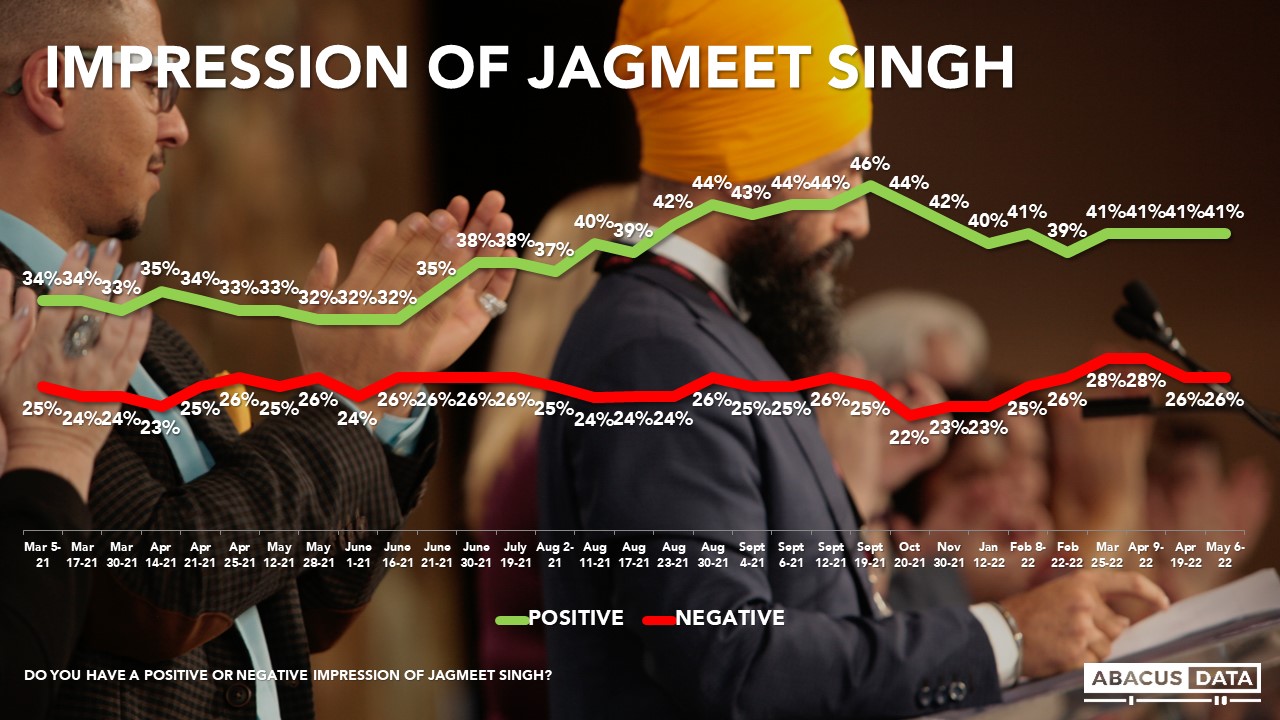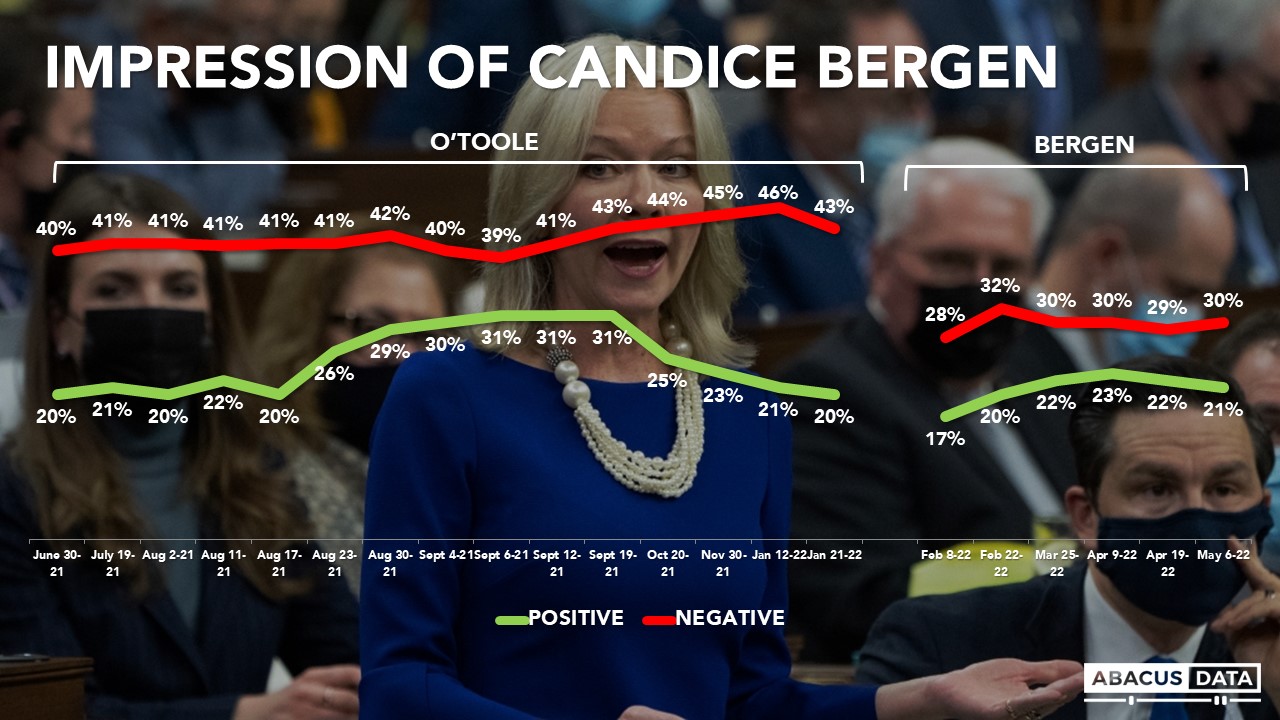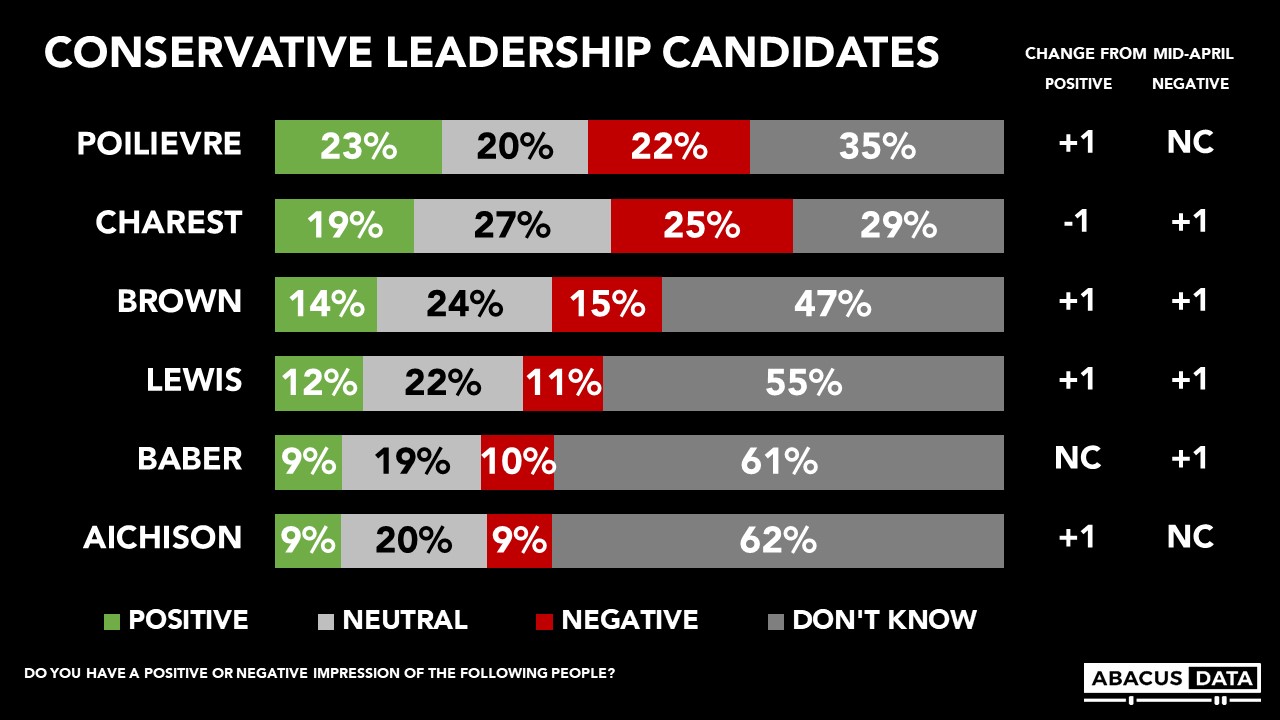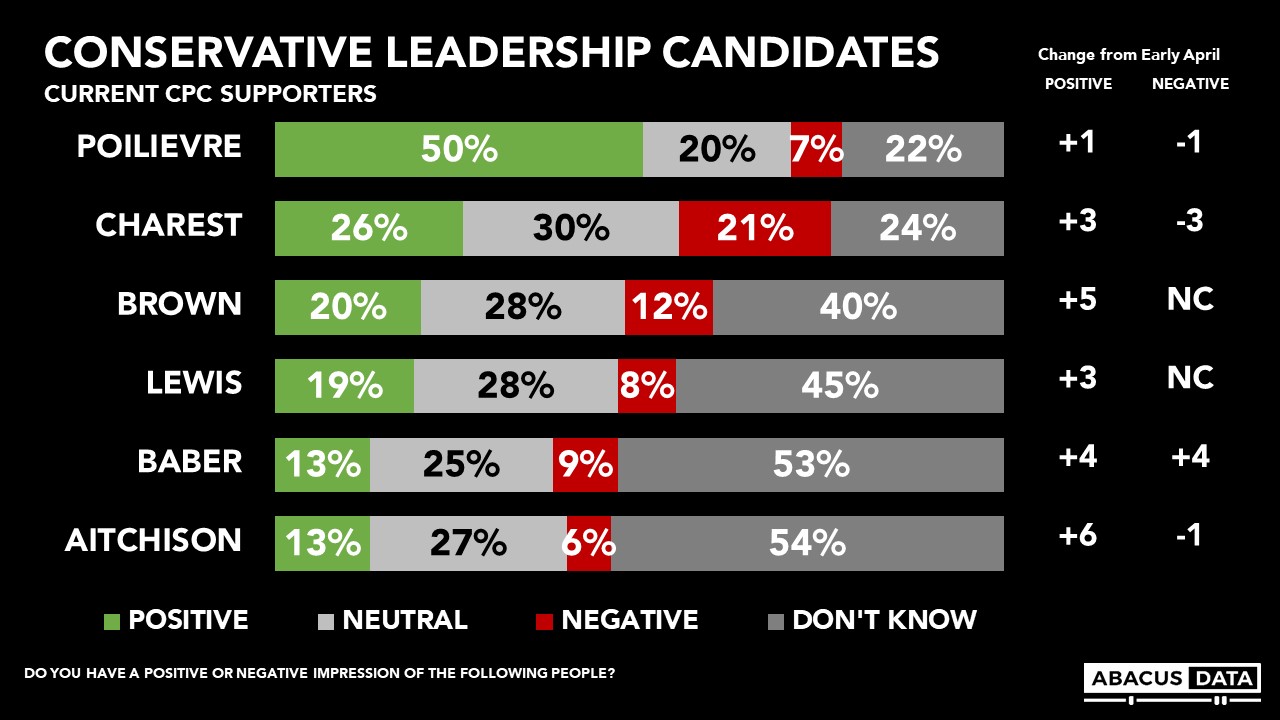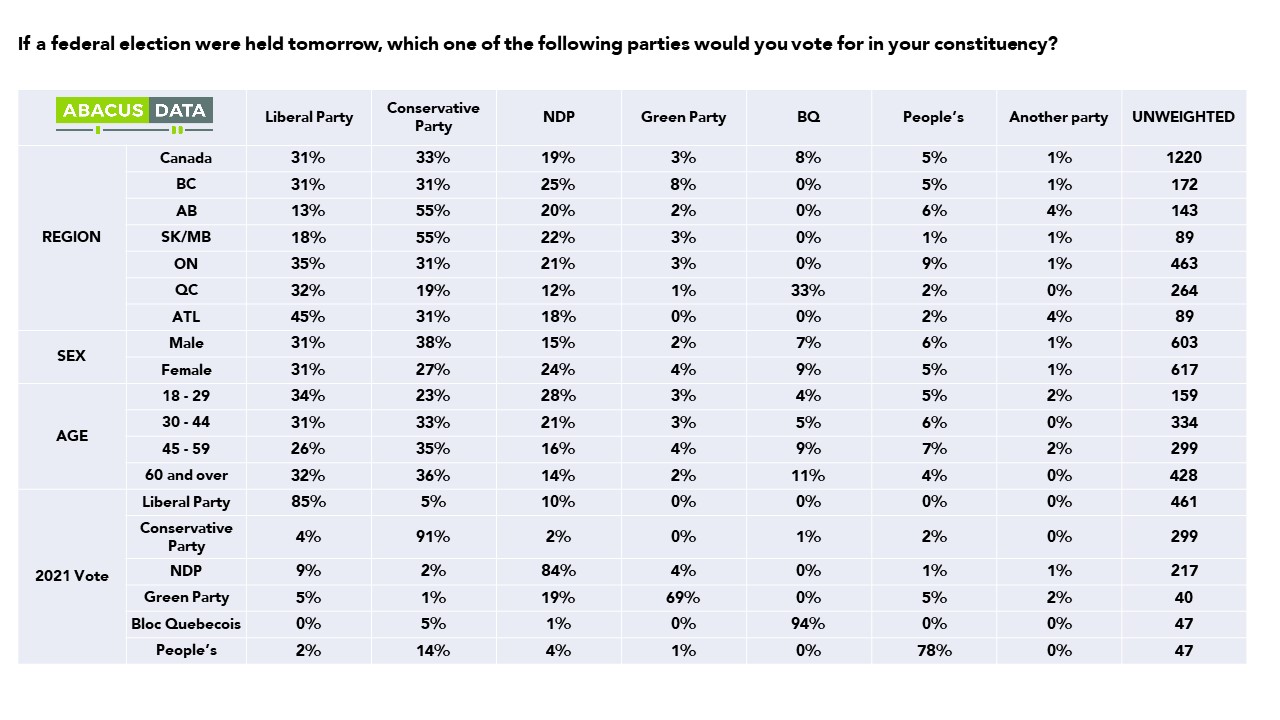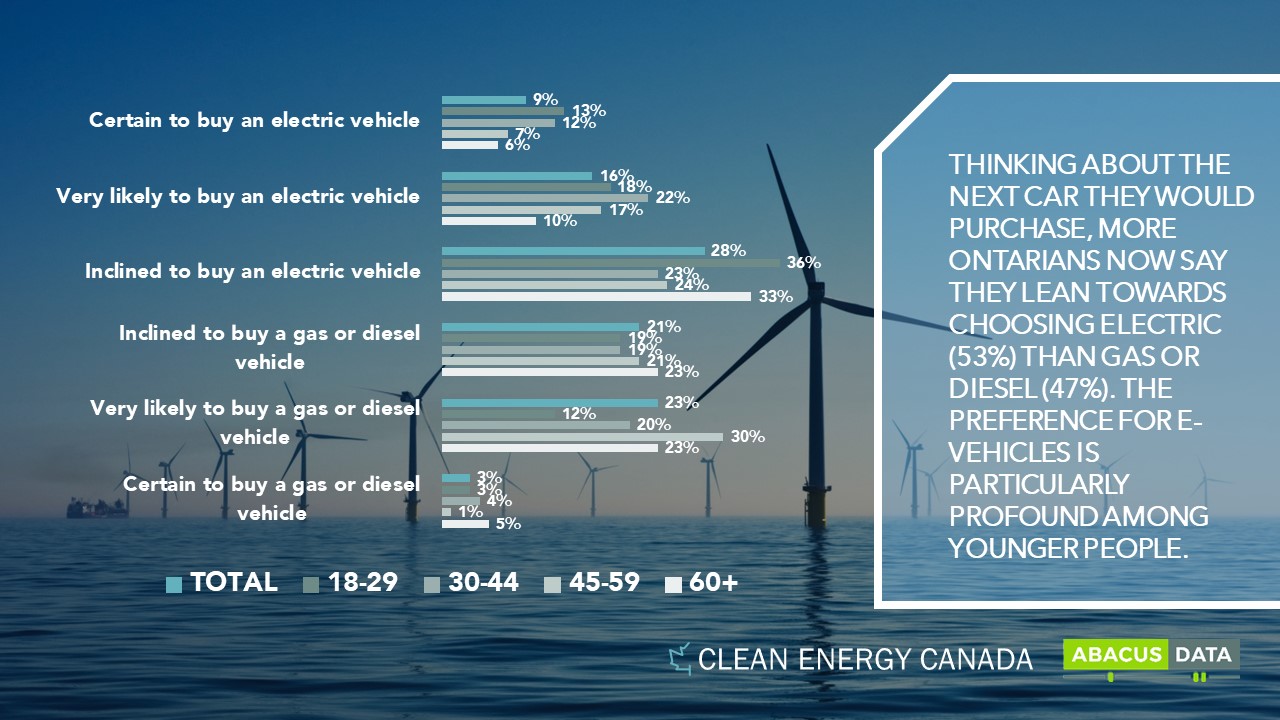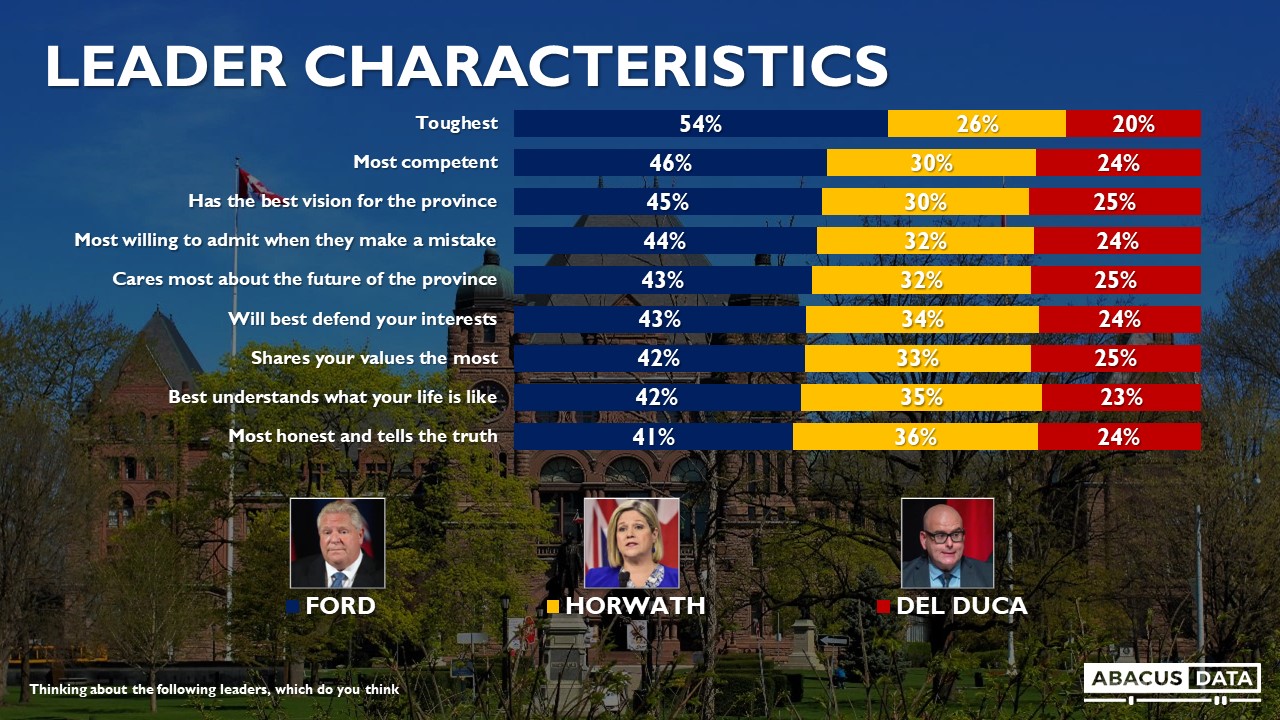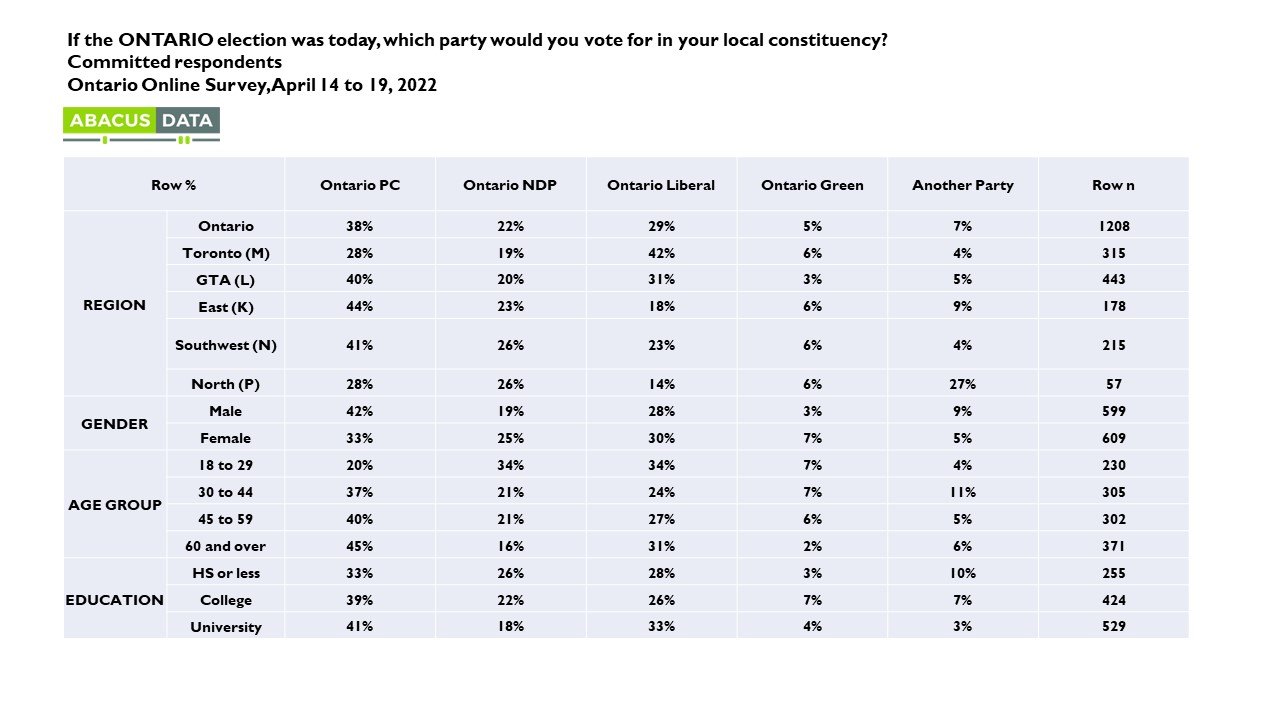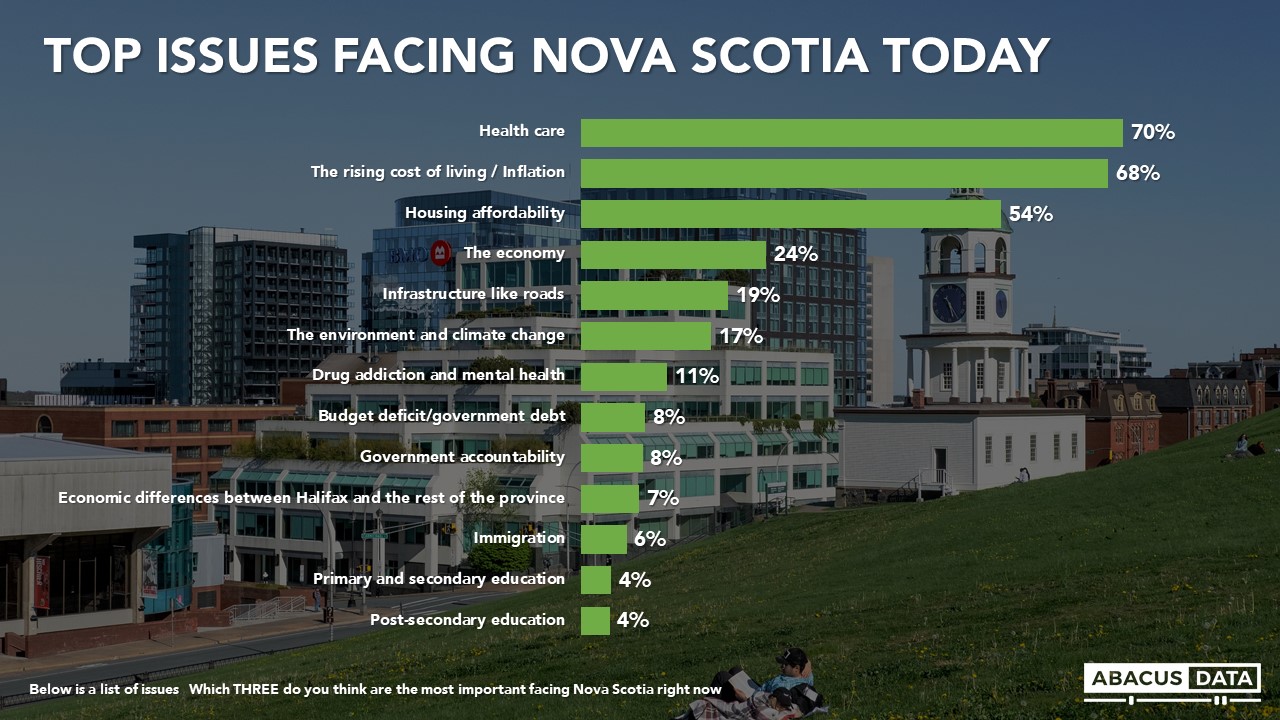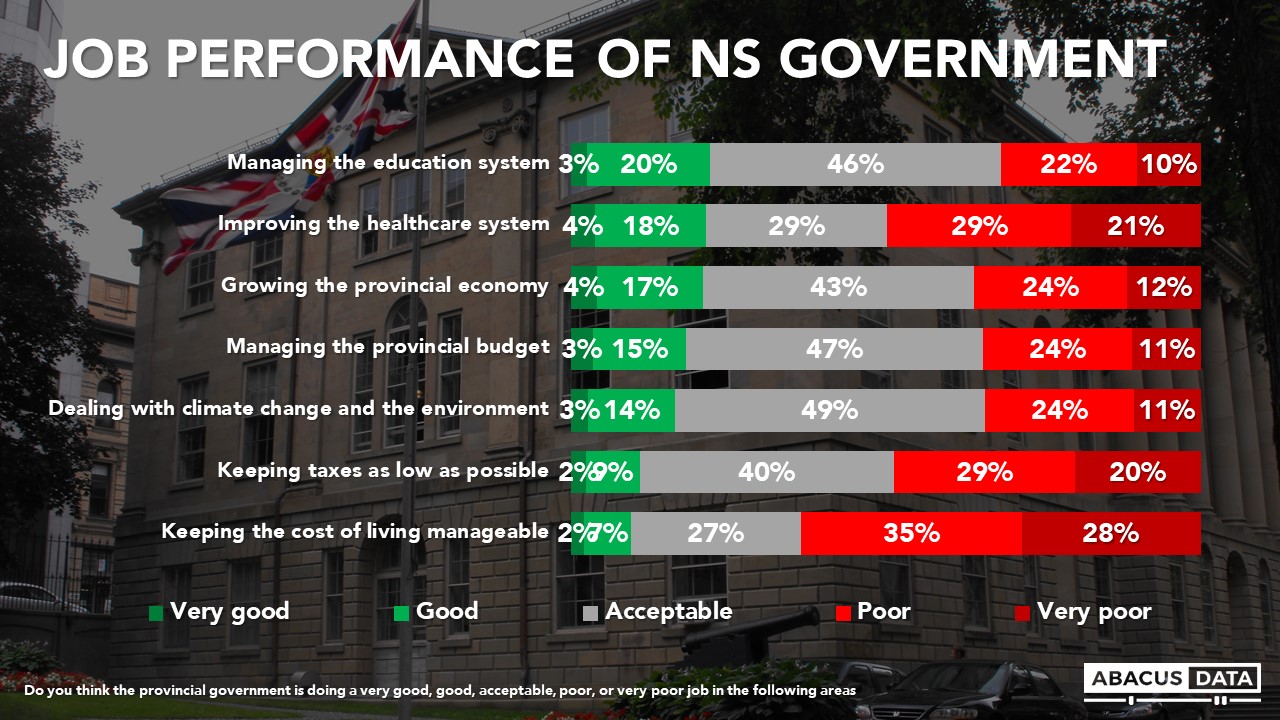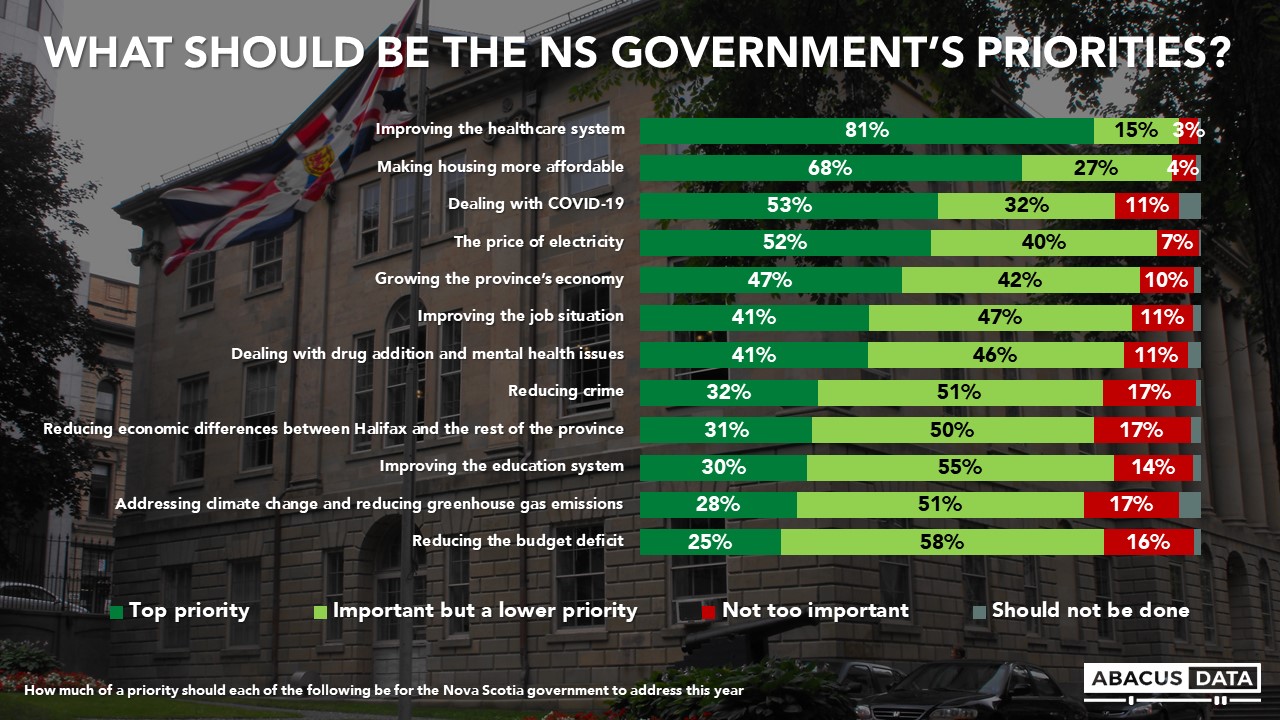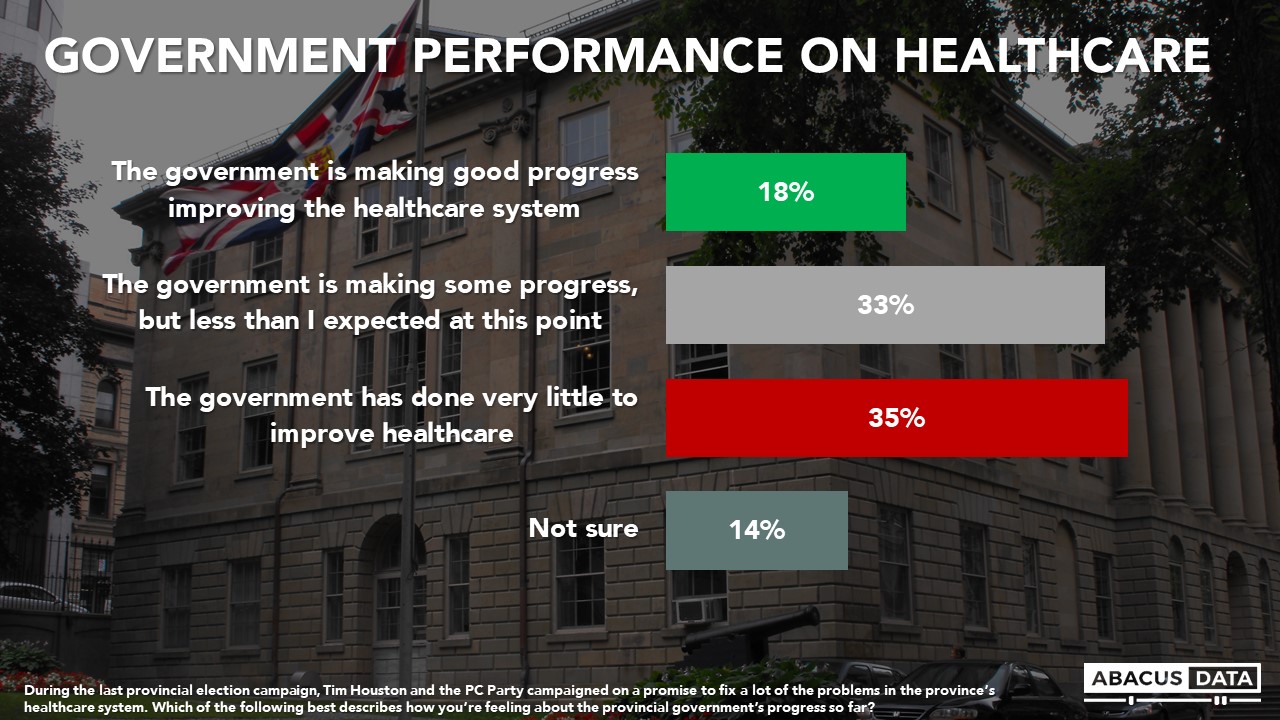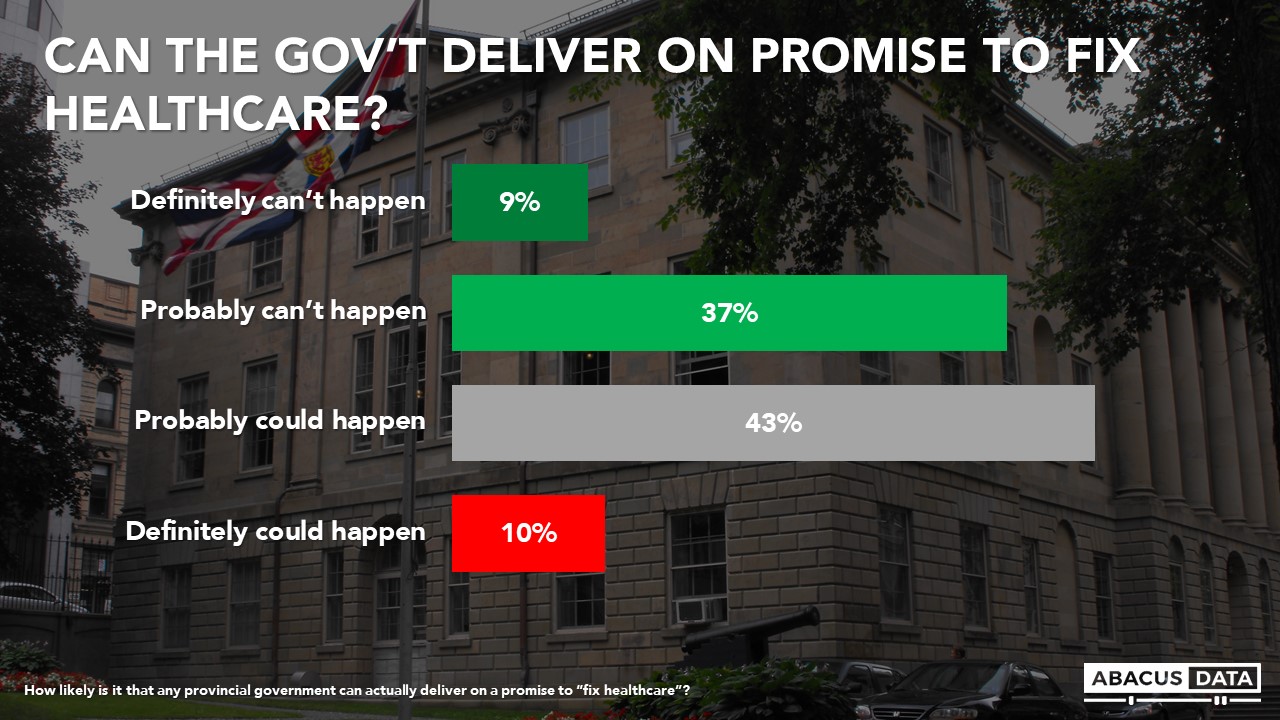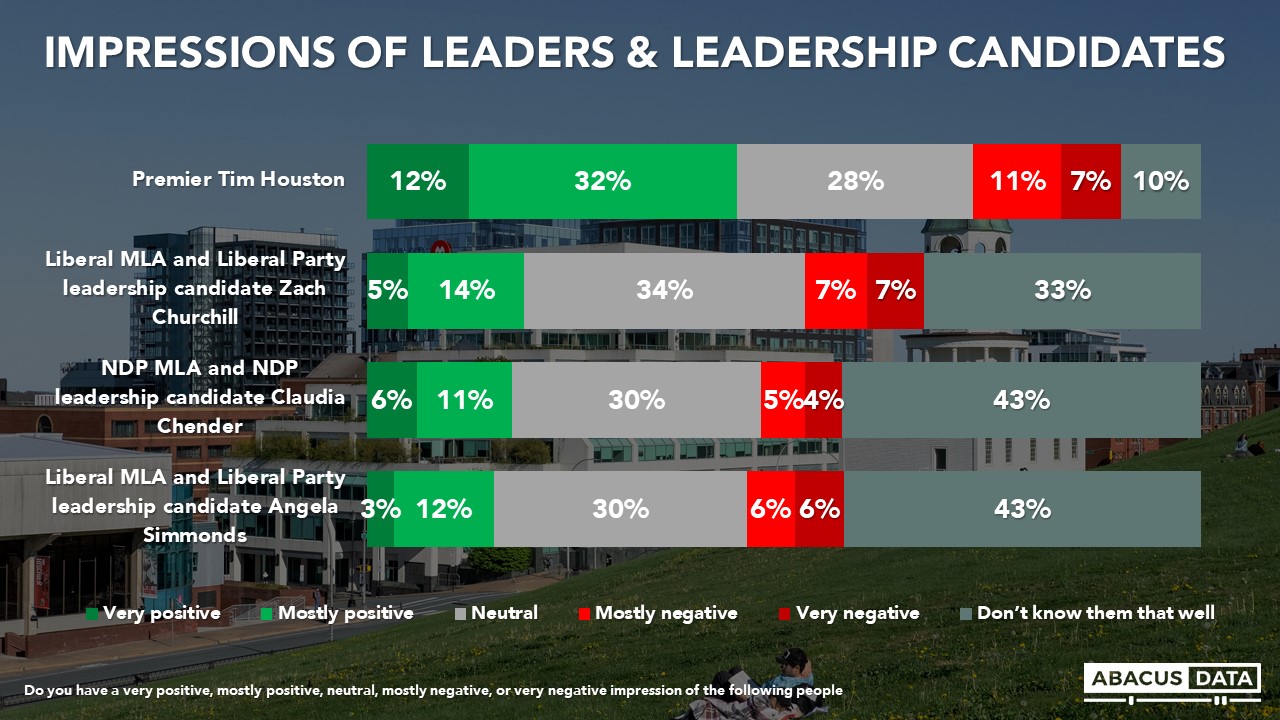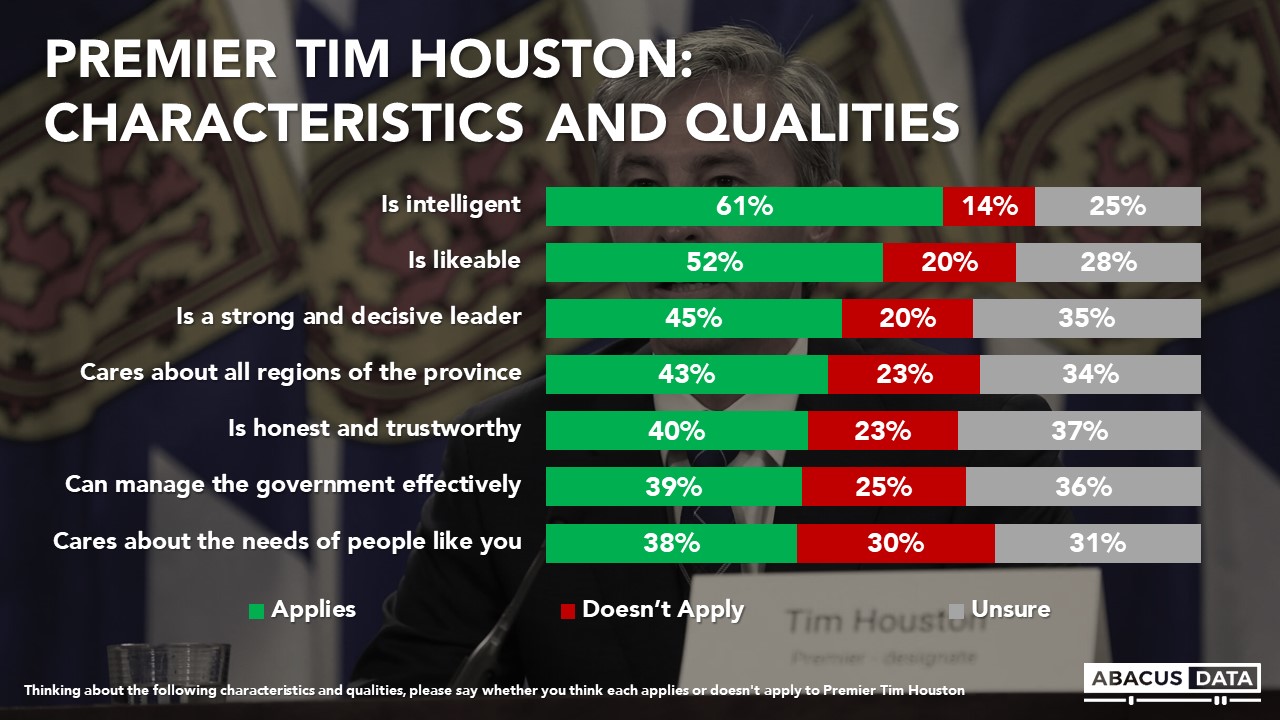Final Abacus Data Poll: Ontario PCs lead by 13 as they head towards another majority government
Earlier today, we completed our final survey of the 2022 Ontario provincial election. Throughout this campaign, we have been tracking public attitudes and intentions and our latest survey indicates that Doug Ford and the Progressive Conservatives are headed towards an easy victory tomorrow and very likely another majority government.
Here’s a quick summary of the results:
-
- Among those who have voted already or are likely to vote tomorrow, the PCs lead by 13 over the Ontario Liberals (PC 40, OLP 27, NDP 22).
- Doug Ford is the most popular leader in the province and a majority believe he has been a good or ok premier over the past 4 years.
- Almost half of Ontarians believe the PCs will win the election
- The NDP and OLP continue to almost evenly split support among “change voters”
DETAILED RESULTS
PCs WELL AHEAD: PCs AHEAD BY 13
If the election was held today, the PCs would win the popular vote easily over the Ontario Liberals. Overall, among those who have already voted and those likely to vote tomorrow, the PCs have 40% of the vote, followed by the Ontario Liberals at 27%, the Ontario NDP at 22%, the Greens at 4%, and the New Blue Party at 4%.
Regionally, the PCs are ahead in Metro Toronto, the rest of the Greater Toronto and Hamilton region, eastern Ontario, and southwestern Ontario. The NDP and PCs are statistically tied in Northern Ontario (note, the sample size in the north is quite small).
Demographically, the PCs lead among men and women and among those over the age of 30. Among men, the PCs get 45% with the Liberals at 24% and the NDP at 19%. Among women, the PCs get 35% followed by the Liberals at 29% and the NDP at 25%.
1 in 5 of those who said they voted Liberal in the 2021 federal election say they have or will vote PC in this provincial election.
BEST PREMIER? FORD LEADS BY ALMOST 20 POINTS
When asked which leader would make the best premier, 36% of respondents selected Mr. Ford followed by Ms. Horwath at 17% and Mr. Del Duca at 14%. 27% were unsure.
Among those who have already voted or are likely to vote, 41% selected Mr. Ford while Ms. Howarth and Mr. Del Duca are within a point of each other for second.
SO WHAT EXPLAINS THE PC ADVANTAGE?
#1 – DOUG FORD IS THE MOST POPULAR LEADER IN THE PROVINCE
Today, 39% of Ontarians have a positive impression of Doug Ford compared with 40% who have a negative view. His net impression score of -1 is the best of the four leaders we tested. Back in March 2020, 61% had a negative view compared with 23% who had a positive one.
When asked to describe Mr. Ford as a Premier, 64% described him as a great premier, a good premier, or an ok premier. Only 31% described him as either a bad or horrible premier over the past 4 years.
The relationship between one’s view of Mr. Ford’s performance and vote intention is very clear.
#2 – IMPRESSIONS OF DOUG FORD HAVEN’T CHANGED MUCH OVER THE CAMPAIGN AND NONE OF THE OTHER LEADERS HAVE MADE MUCH PROGRESS EITHER.
When we ask whether their impression of each of the main leaders has improved, stayed about the same, or worsened over the campaign, Mr. Ford’s net impact score is better than any of the others, except for Mr. Schrenier, the Green Party leader. For Mr. Del Duca, the least known of the three main party leaders when the campaign started, more said their impression of him worsened than improved.
#4 – THE PCs LEAD OR ARE COMPETITIVE ON THE TOP 5 ISSUES OF THE CAMPAIGN
The cost of living, housing affordability, healthcare, taxes, and the economy top the list of issues voters say will be most important in their vote.
When respondents are asked which party will do the best to deal with the issues they care most about, the PCs are well ahead or competitive on all five of those top issues including housing and healthcare.
#5 – THE DESIRE FOR CHANGE HAS BEEN STATIC OVER THE CAMPAIGN AND THE LIBERALS AND NDP CONTINUE TO EVENLY SPLIT CHANGE VOTERS.
50% of Ontarians definitely want to see a change in government, up slightly from last week but consistent with the view held at the start of the campaign.
These numbers are comparable to the 2021 federal election but far better for the incumbent PCs than the mood faced by Ms. Wynne and the Liberals as they sought re-election in 2018.
Among those who definitely want to see a change in the government, the Liberals and NDP split the vote almost evenly and this has not changed at all throughout the campaign.
One of the big reasons neither party has been able to close the gap with the PCs is because of this split.
#6 – HALF THINK THE PCs WILL WIN THE ELECTION AND ATTENTION TO THE CAMPAIGN REMAINS TEPID AT BEST.
When asked who they think will win the election, 48% select the PCs (up 3 from last week) followed by the Liberals at 21% and 9% for the NDP. Efforts by the NDP to position themselves as the party best able to beat PC candidates haven’t had much impact on public perceptions.
Attention to the campaign has increased slightly since last week but remains tepid at best. 43% of respondents say they have followed the campaign only a little or not at all.
#7 – FEAR OF ANOTHER PC GOVERNMENT HAS BEEN LIMITED AND THE PROVINCIAL GOVERNMENT’S PERFORMANCE DURING THE PANDEMIC HAD LITTLE IMPACT ON PEOPLE’S VOTE.
In this survey, we asked respondents whether the PC government’s handling of the pandemic, PC Party candidates refusing to participate in local debates or their general feelings about Doug Ford made them more or less likely to vote PC.
In all three cases, 35% or less said they were less likely to vote PC because of those factors – insufficient, in my view, to create more desire for change.
Moreover, when we ask whether a re-elected PC government would make several policy areas better or worse, less than 40% felt things like education, healthcare, climate action, access to abortions, or the economy broadly would be worse if the PCs were re-elected.
The only item that almost half of the respondents felt would get worse if the PCs were re-elected was their cost of living – something I think people feel would get worse regardless of which party wins the election.
In contrast, the PC message about building more highways seems to have broken through with 40% feeling the quality of highways in Ontario would get better if the PCs were re-elected, higher than any other item we tested.
UPSHOT
 According to David Coletto: “Doug Ford and the PC Party are likely to win another majority government tomorrow. They will likely repeat the vote share they earned in 2018 thanks to a relatively low desire for change, good issue ownership on the top issues, and less desirable alternatives.
According to David Coletto: “Doug Ford and the PC Party are likely to win another majority government tomorrow. They will likely repeat the vote share they earned in 2018 thanks to a relatively low desire for change, good issue ownership on the top issues, and less desirable alternatives.
In 2019, prior to the pandemic, more than 60% of Ontarians had a negative impression of Premier Ford. Today, that is only 40%. He is the most popular leader in Ontario and while some feel he has been a bad premier over the past four years, most Ontarians feel he has done at least an ok job as premier.
This assessment, in the absence of an alternative that excites the public, is clearly sufficient for the PCs and Mr. Ford to be re-elected.
The public has not been highly engaged in this campaign. The campaign has lacked friction and despite efforts to increase the desire for change and offer up a compelling alternative, the Liberals and NDP have failed to make any progress in turning people against Mr. Ford or positioning either of their parties as compelling, exciting, or worthy alternatives. Among those who definitely want a change in government, the Liberals and NDP are essentially tied in vote share. Neither has gained ownership of any of the top issues in the campaign, including issues like healthcare and housing affordability that the Liberals and NDP often own.
Perhaps most telling, there is no fear of another PC government. Most think that if the PCs are re-elected, policy areas like education, healthcare, climate change, and others will either get better or not change. Less than 40% think those things will get worse under a PC government. Those kinds of numbers are not sufficiently high enough to defeat a government in a multi-party system where the alternative parties are unable to consolidate the change vote around them.
Finally, although the New Blue Party and the Ontario Party are likely to win a substantial share of the vote, it likely isn’t enough to prevent the PCs from winning another majority government. If anything, the PCs effectively pivoted away from a more conservative orientation into one that focused on issues people care most about it. The PCs will win this election because they have the most popular leader and are seen as best able to handle the issues more voters care about. The party’s handling of the pandemic has not been a liability in this campaign.”
METHODOLOGY
The survey was conducted with 1,500 eligible voters in Ontario from May 29 to June 1, 2022. A random sample of panelists were invited to complete the survey from a set of partner panels based on the Lucid exchange platform. These partners are typically double opt-in survey panels, blended to manage out potential skews in the data from a single source.
The margin of error for a comparable probability-based random sample of the same size is +/- 2.6% 19 times out of 20.
The data were weighted according to census data to ensure that the sample matched Canada’s population according to age, gender, educational attainment, and region. Totals may not add up to 100 due to rounding.
This survey was paid for by Abacus Data Inc.
Abacus Data follows the CRIC Public Opinion Research Standards and Disclosure Requirements that can be found here: https://canadianresearchinsightscouncil.ca/standards/
ABOUT ABACUS DATA
We are the only research and strategy firm that helps organizations respond to the disruptive risks and opportunities in a world where demographics and technology are changing more quickly than ever.
We are an innovative, fast-growing public opinion and marketing research consultancy. We use the latest technology, sound science, and deep experience to generate top-flight research-based advice to our clients. We offer global research capacity with a strong focus on customer service, attention to detail, and exceptional value.
We were one of the most accurate pollsters conducting research during the 2021 Canadian election following up on our outstanding record in 2019.
Contact us with any questions.
Find out more about how we can help your organization by downloading our corporate profile and service offering.









